#her Mary Sue has HER INITIALS
Text
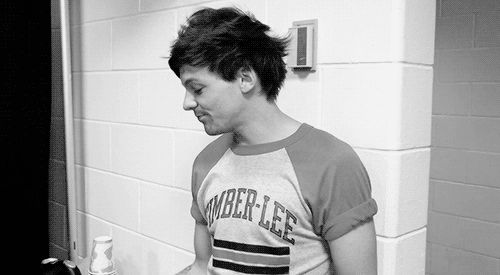
#it’s the way Maya#is 100% using a pay to publish company#to publish her HACK JOB Y/N FIC#her Mary Sue has HER INITIALS#she moved Liam’s initials by literally three letters#from LP to OS#I’m SCREAMING#she writes a fictionalized version of the first m&g#CARY is the most popular guy#LANCE is the kindest and most aware of fans#I mean!#and she says OLIVER is the LEAST POPULAR#acts like he’s older than all of them#everything is forced#I’m just GAGGED that she’s going this route#in the worst way#😱😱😱😱#also the writing is BAD#any real publisher would be paying HER to publish this#releasing direct to Amazon had me 👀👀#and then looking up the supposed publisher#like I said it’s 100% a pay to publish#and she’s paying for the literal copies of the book#paying Amazon to distribute#etc#embarassing#don’t fuck with me I work in publishing#K*itlin T**fany at least had a real publisher#and a real agent#LOL
13 notes
·
View notes
Text
just remembered an extremely old oc. girl i have great plans for you
#rambles#she was my mary sue kid icarus uprising oc protagonist girl angel when i first made her#and then i just left her there and never did anything with her#but honestly? honestly. i can remake her. i can make her better#im plopping her down in my oc world#current initial idea i have is that everyones an anthro so i get to be funkier with designs#im not great at designing clothes so having all the characters be humans is like making 'guy with the shittiest closet number 69'#with that in mind. angel will be the only character with a human face and shes going to be all ~angelic~ or whatever#that was her initial idea anyways back in 2015 where she looks a lot like some pretty woman with wings#anyways shes like an anglerfish where she will lead you to your death#go girl lure people away and feast on their flesh#i think she'll have an alternate form thats more grotesque#not her true form. i dont think she has one. but its not the angelic illusion she often wears#but yeah i like the idea of repurposing this 'girl who can do no wrong' oc into something that you dont want to encounter#also she has a twin but im not sure what to do with that twin. might scrap her. woops#oh what if i repurpose her twin into being some sort of Creature Hunter#wait wasnt that one of fen & rey's scrapped dynamics#well they dont have that anymore since i've made rey less of a monster creature and more of a human who fucked up badly#but the monster rey ideas were cool... i could reuse that on a different character
4 notes
·
View notes
Text
Headcanon about Sebastian and my mc, Sakurako
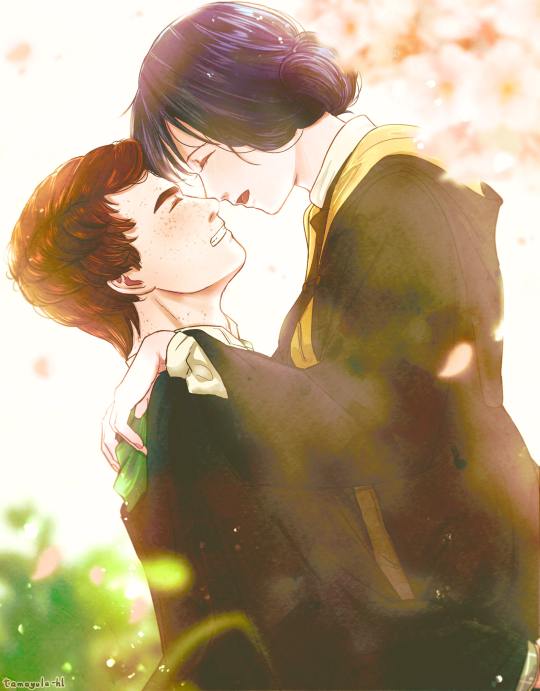
NOTE
・Sakurako is a Mary Sue-like character with an unrealistic personality. Reading is not recommended if you don't like Mary Sue-like OCs!
・It's very long. To be honest, all the descriptions of Sakurako are nothing more than a product of complacency for me. I am a little embarrassed to disclose my headcanon, which is filled with these particular settings and delusions...😳
・Read from the top right in Japanese manga style.
・And again, please bear with my poor English🤣
Until admission to Hogwarts
In 1875, Sakurako was born into a former samurai family when the cherry trees (sakura) were in bloom.
In Japan, the samurai society was abolished around 1868 and the samurai were forced to take the status of commoners. Sakurako's samurai-turned-commoner father became a successful trader and took young Sakurako and his family to Britain to get serious about the raw silk trade with Britain.
(At the time, there was a thriving raw silk trade between the British and Japanese.)
Her father, who had a male-dominated mindset due to his birth in a samurai society, restricted her from academic opportunities that she did not need for a better marriage. Whenever she went out of the house, local children always made fun of her yellow skin. One day, after such a depressing life, with the sudden awakening of her magical powers, Sakurako received her Hogwarts acceptance letter and became a member of the Wizarding World, a place free of sexism and racism, where she had a fateful meeting with Sebastian and formed a warped love with him.
During the relationship quest with Sebastian
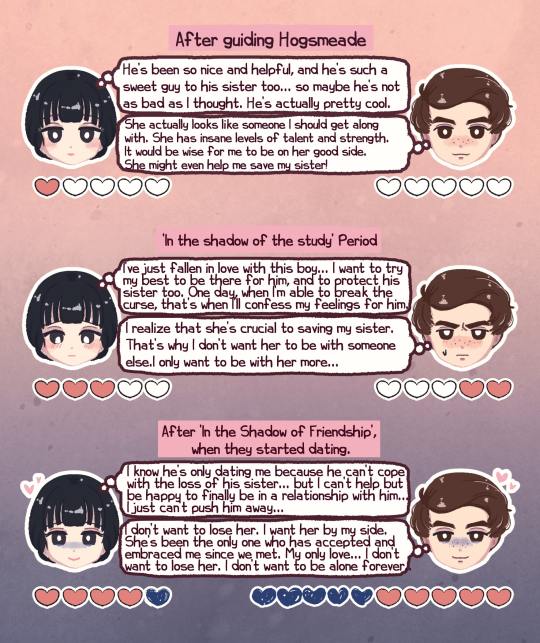
In my personal opinion, I consider Sebastian to be a very calculating character.
Sebastian initially comes into contact with Sakurako as a means of breaking Anne's curse.
Sakurako takes an early liking to the boy, Sebastian, who is very kind and helpful to her in her first time in the wizarding world, but it is around the 'In the shadow of the study' quest that Sebastian begins to take a liking to Sakurako.
Having grown up watching her parents become arrogant new rich through their success in the trades, Sakurako has a desire to be a good person who is not conceited by her talents and luck.
Impressed by the fact that the wizarding world is free from sexism and racism and that everyone treats her with openness, Sakurako is so excited that she takes on any request from anyone without refusal.
Sakurako feels threatened by Sebastian's obsession with the relics after "In the shadow of the study", but she can't refuse Sebastian's request and continues to cooperate with him. Then came the tragedy of 'Avada Kedavra'.
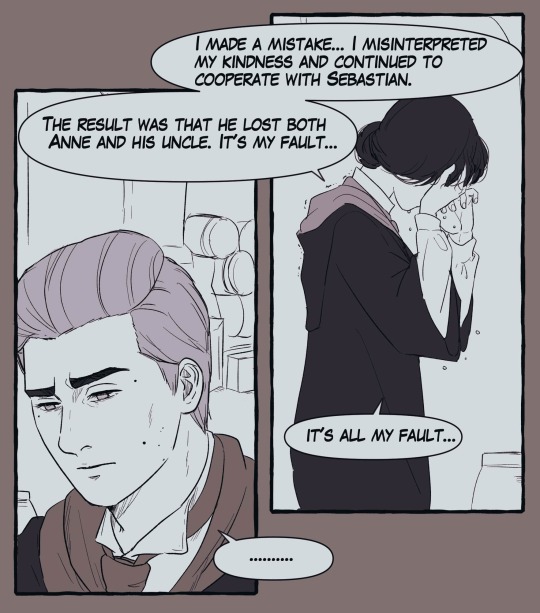
After all is over, Sakurako realises how stupid she has been. She continued to help Sebastian (and the other students) out of kindness and goodwill, but as a result she realised that she was not a good person, but an arrogant monster with no sense of right and wrong.
Sebastian's mistakes were all her fault, and she blamed herself from this moment until her death, and she would have lifelong thoughts of 'rewinding time and starting all over again'.
Sakurako was deeply in love with Sebastian at this point, but out of remorse she tried to distance herself from him. However, Sebastian forcefully continued to contact Sakurako, confessed his fondness and they began dating.
About relationships
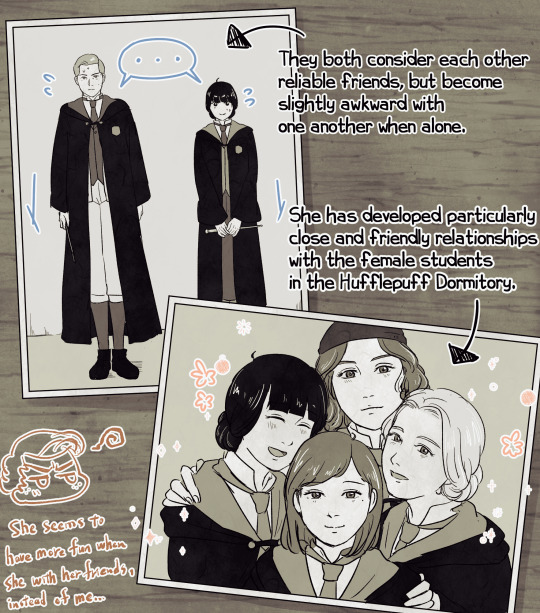
Elsewhere, Sakurako had established a friendship with Anne over a number of correspondence until tragedy struck, which was disrupted by Anne's disappearance after Solomon's death.
In my headcanon, Sebastian heard the news of Anne's death in the seventh year, and Sakurako was also deeply saddened and even more remorseful when she heard of her death.
Sakurako kept Anne's letters and the last letter she was unable to send to Anne for the rest of her life.
Subsequent relationship with Sebastian
Since she and Sebastian have been seeing each other, Sakurako has been constantly worried that the love Sebastian has for her is not genuine love, but an obsession caused by the confusion and trauma of losing Anne.
She was aware that their relationship was codependent, not healthy love, yet she spent her days loving Sebastian so much that she could not reject him.
She dreads every day that one day Sebastian's love will disappear and he will instead resent her and saying 'Solomon's death was your fault'. When she is in the seventh year and thinking seriously about her future life, she finally decides to break up with Sebastian.
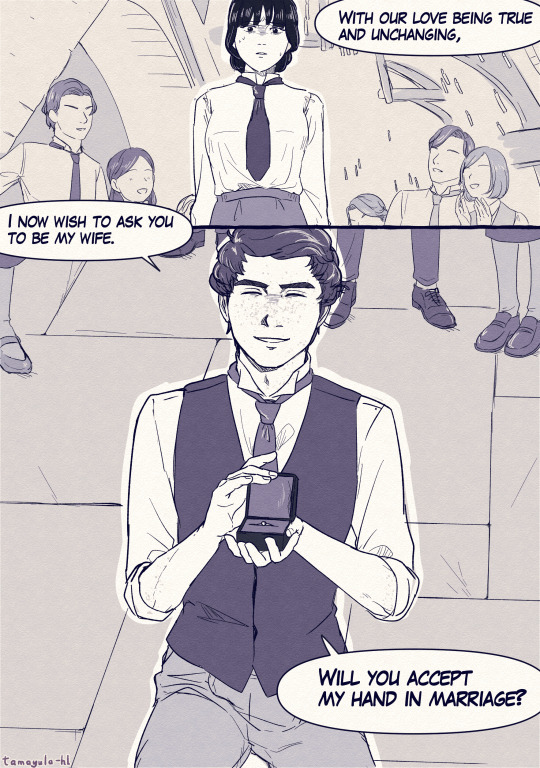
When Sebastian realised that Sakurako was acting strangely and that she wanted to break up with him, he asked her to marry him in The Great Hall at a crowded time, in front of many people watching, in a situation where she could not say 'no'.
As per Sebastian's cunning intentions, Sakurako is unable to reject Sebastian and becomes engaged to him.
However, even after her engagement, Sakurako's insecurities were not exhausted. Worried that she would never be happy even if she married him in an unhealthy codependent state, Sakurako finally came to her senses and, after secretly returning the engagement ring in Sebastian's bag after the graduation ceremony, disappeared without saying anything to him.
Sakurako then went to Japan and spent her days learning about Japanese native magic, which she had long been interested in. However, after about a year, she is discovered by Sebastian.
After Sebastian apologises for how selfish he had been, he asks Sakurako to marry him again.
After a few days of deliberation and discussion with Sebastian, Sakurako accepts his engagement with a smile.
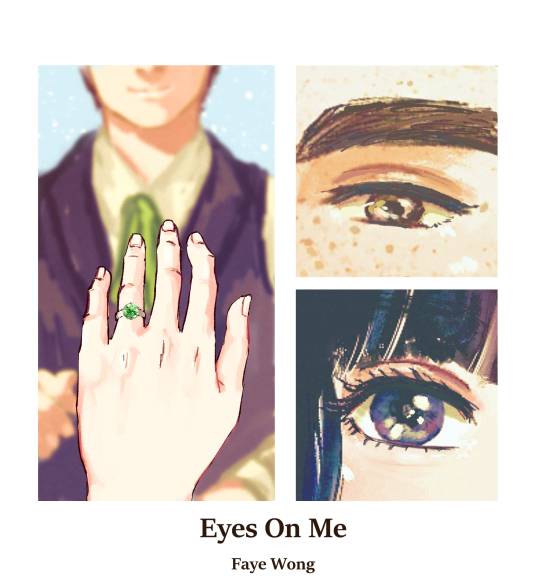
(This is an Illustration I drew for a previous Twitter post introducing the MC's image song)
Afterwards, Sakurako returned to Britain and officially married Sebastian, giving birth to their first daughter the following year, and then to male and female twins the year after that.
About the death of Sakurako
Sakurako became Unspeakable of the Department of Mysteries shortly after returning to Britain.
https://harrypotter.fandom.com/wiki/Department_of_Mysteries#Early_history
It is official canon in the Wizarding World that the Department of Mysteries conducted time travel experiments in the 1890s and then had a serious time accident in 1899. I have built on this canon to create a head canon in which Sakurako dies in 1899.
Ever since the tragedy of 1890, Sakurako had been harbouring a wish to 'go back in time and do it all over again so that Sebastian would not make the same mistakes'.
Then, she is asked by the other Unspeakables to help them with a time travel experiment using her ancient magical powers. She understands that it is a dangerous experiment, but with a strong desire to redo the past, she accepts the request and takes part in the experiment.
Then one day in 1899, Sakurako was involved in a time accident with Madam Mintumble and her existence was lost. The Department of Mysteries determined that she had died in the chasm of time.
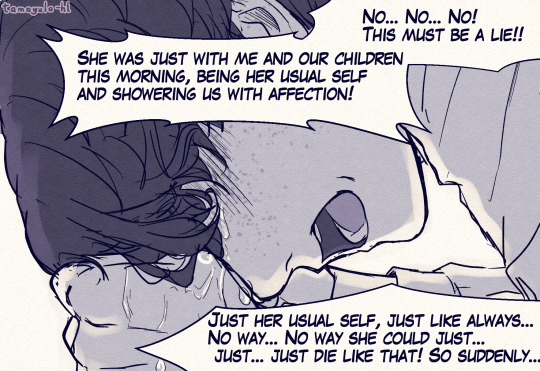
When Sebastian heard the news of his wife's death, he despaired violently, but had no time to grieve as he had the three young children Sakurako had left behind to look after.
He vowed to raise them well on his own.
After his wife's death, Sebastian, who had been active in the outside world as an Auror, moved inside work and, after the twins entered Hogwarts, became a Professor of Charm, watching over his precious children as they grew up.
The consequences for Sebastian and Sakurako
I consider an even more specific headcanon for Sakurako: 'She survived only her soul by the power of an ancient magic, losing her memory and trapped in an endless loop of time'.
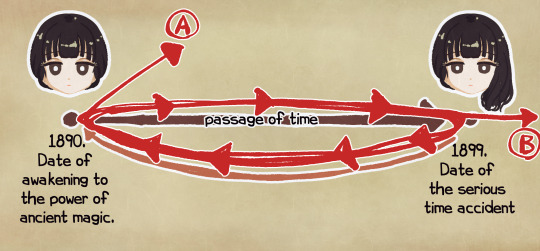
She loses her memory but somehow survives with only her soul and travels back in time to 1890 with only her soul for her obsessive wish to 'start all over again for Sebastian'. But because she has lost her memory, she ends up repeating the same mistakes and is unable to save Sebastian, despairing and wishing to 'start all over' again.
Trapped in the Ouroboros circle of time and tormented by eternal guilt… is the headcanon about her.
(I love novels and movies about time leaps and infinite loops… 😳)
But I also have two possible outcomes when she is able to escape the endless loop.
The first is route A.
If Sakurako is able to time leap without losing her memories.
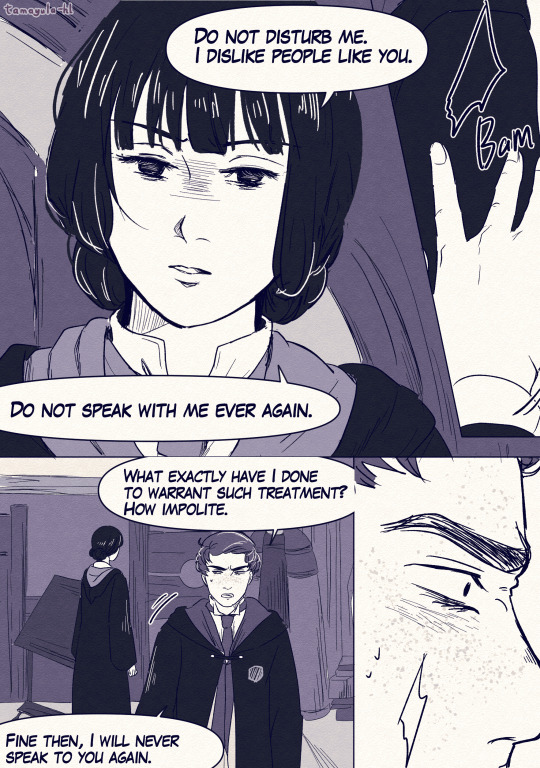
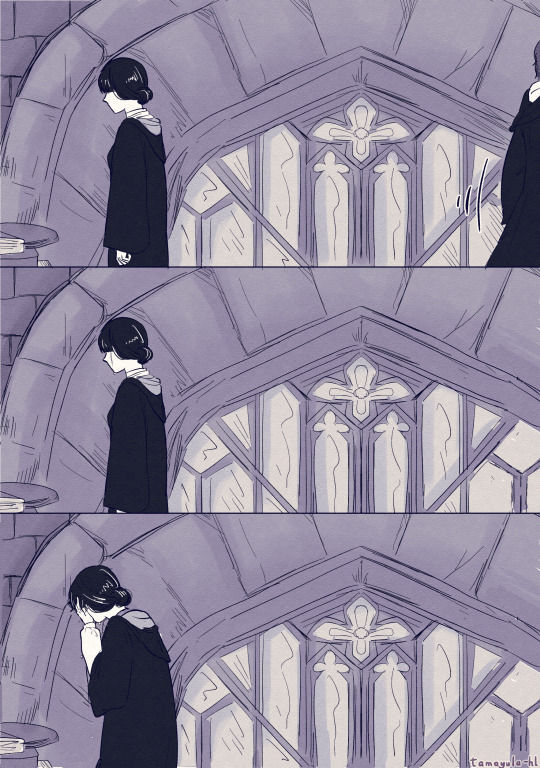
(I like Butterfly Effect soooooo much!!!!!!!!)
During that fateful encounter with Sebastian at DADA on her first day of transfer, when he spoke to her after class, she rejected him and said terrible things to him. Sakurako thinks that that tragedy happens because she and Sebastian have become friends, so she tries to save him by making Sebastian hate her… and so the ending goes.
And Route B.
If by the power of love she accidentally escapes from the infinite loop and travels back in time to a world 100 years later. (Never mind the details. The power of love is powerful in the Wizarding World, right?)
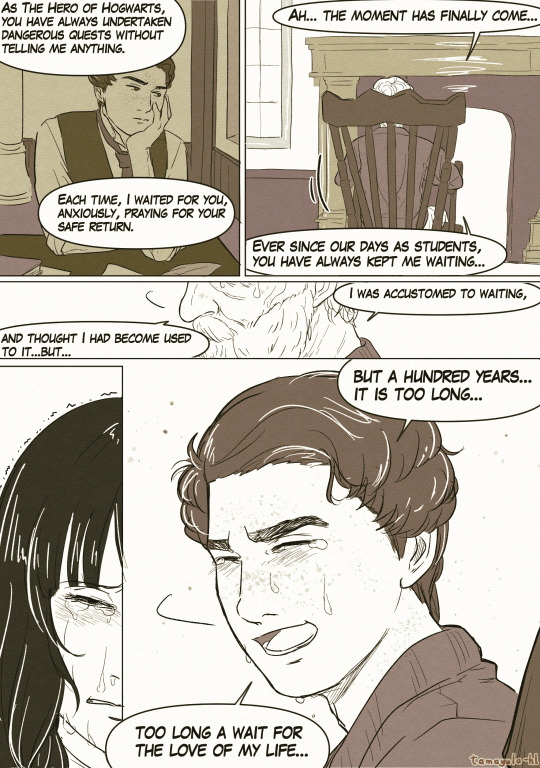
She is miraculously reunited with Sebastian, who has been surviving and waiting for her return for all of a hundred years… and that is the ending.
Having fulfilled his purpose in life, Sebastian soon dies, and Sakurako's soul, weakened by multiple time slips, also ascends.
In any case, Sebastian and Sakurako do not end up completely happy… which is my preference.
I love tragic love stories 😂
But it's nice to see these tragic couples having fun in extra episodes and so on!
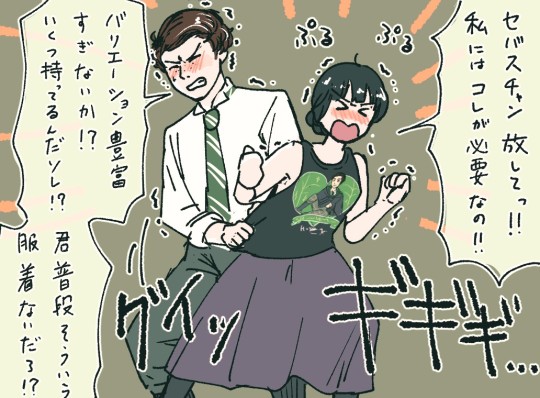
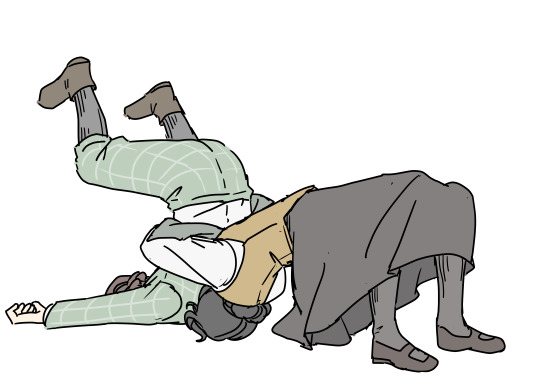
(The drawing on the left is part of a cartoon I drew when the Sebastian T-shirt was decided to be launched. The drawing on the right is a parody/trace of a meme that used to be popular in Japan)
These are my headcanons on Sebastian and Sakurako!
I'm honestly embarrassed to reveal my brain fantasies 😳.
Thanks so much for taking the time to read this long post! 😭💓
The following are the Japanese versions!
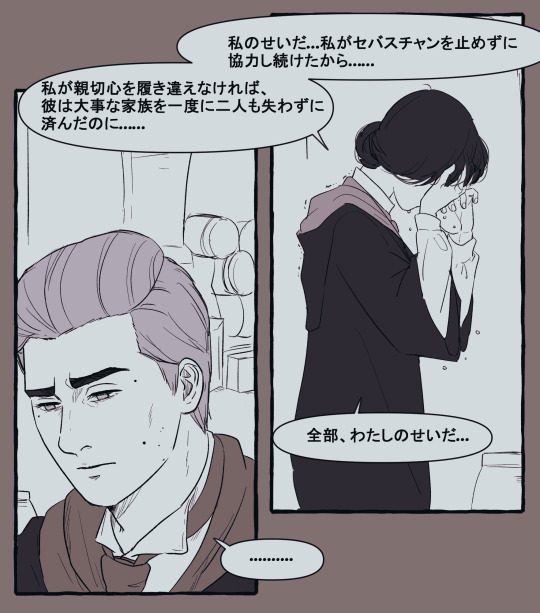
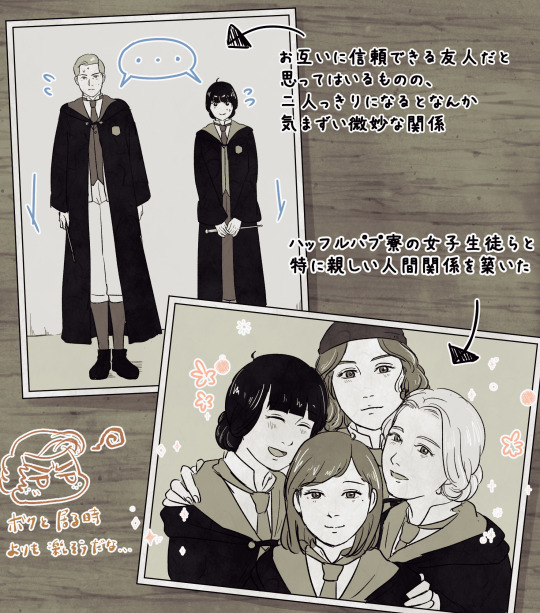
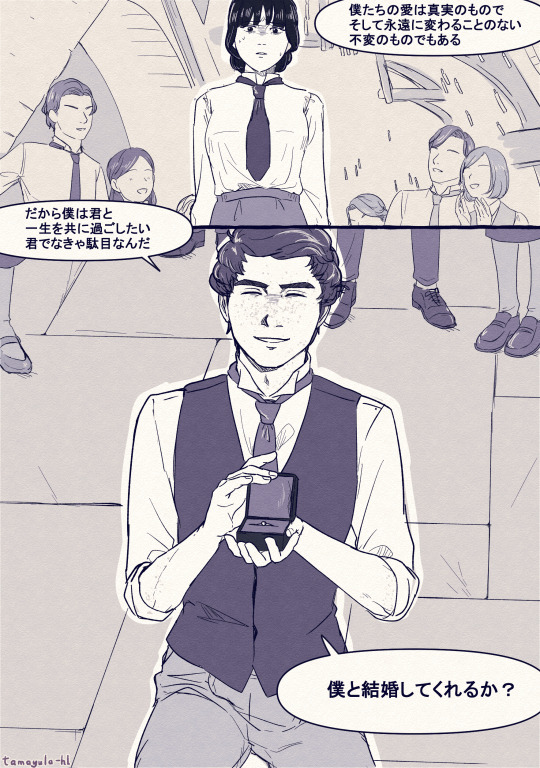
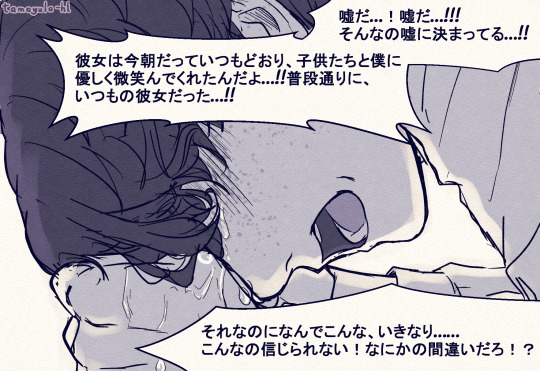
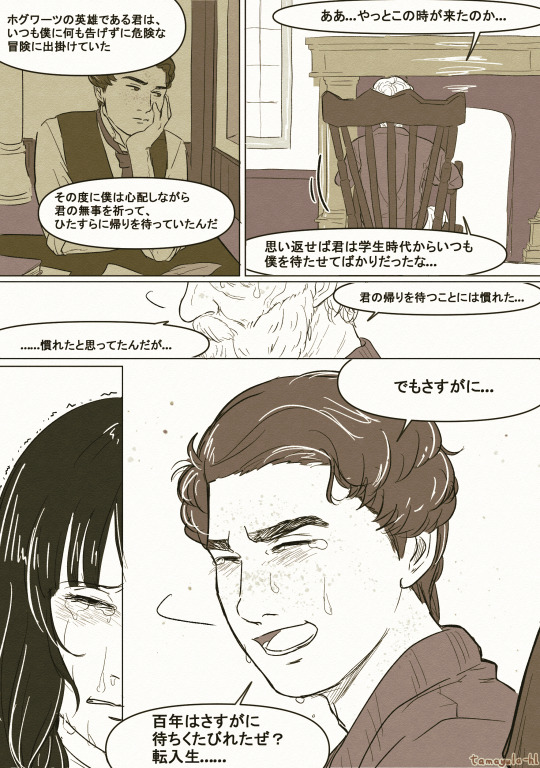
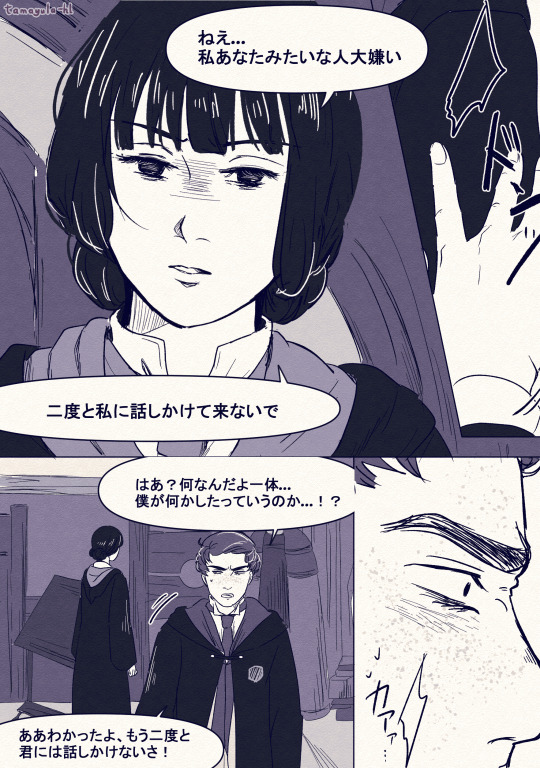

243 notes
·
View notes
Note
I used to looooathe Glory. I thought her bad mood and constant sass was really annoying; however, I came to realize how a lot of her behavior stems from her abuse. Since then, she has become waaaay more of an interesting character to me.
Kestrel and the other guardians (but mostly Kestrel) always berating her and making her feel useless is probably why she started off as so snappy and pessimistic. She didn't see much of a point in trying to be better because nothing she ever did was good enough to them.
She doesn't show her emotions because crying or getting angry would've made her vulnerable to further abuse from the guardians. Some people find it strange that Glory doesn't seem shaken after using her venom on someone, but with this in mind, I think her cold attitude makes sense. She buries her feelings deep down (she doesn't even like to let her emotions slip through her scale color).
I doooo have to admit that it's little irritating to me that ever since the first arc, pretty much every dragon that isn't a villain automatically adores her? I guess dragons like Snowfall are initially skeptical of her, but they come to admire her pretty quickly. Of course!! It's great that she's finally getting appreciation after a childhood of neglect, but it just feels a bit forced to me.
I also think she becomes a little bland after the first arc, but I think that's because we don't get things from her POV anymore and generally just isn't that involved. As I said before, Glory tends to keep her thoughts to herself. Plus, she's learning the ropes of being a queen, so she's probably trying to be more mature.
Contrary to what a good chunk of the fandom believes (and what I used to believe), Glory definitely isn't a "Mary Sue." Yes, she achieves a LOT, but she is still flawed. Honestly, I think that term is often used just to be sexist :/ But that's a whole different debate.
This is a pretty shallow analysis; Glory is a surprisingly complex character (so are the other DoD tbh). But I don't have the energy to do a deep dive right now 🥲 So yeah. You can still dislike Glory (even with all of that said, I myself still feel kind of neutral about her), but don't brush her off as OP or a Mary Sue or whatever.
.
88 notes
·
View notes
Note
It's fine I perservere through everything bc I am just that cool
Also yeah, wtf has happened since I've been gone??? Like? Last I new was the Wilbur stuff and know there's talk of the French Union threatening to sue Quackity (I think? I'm a little confused on the whole thing)
oh god sammie you have missed. so much.
um. ok. nutshell summary. this is gonna be long. (tw: talks about more abuse and SA allegations being brought against other ccs)
other mcyt cc allegations after wilbur:
you know what happened with wilbur. after all the support shelby received, another streamer caitibugzz (another brighton cc) came forward with her own story about being sexually assaulted by a cc at vidcon while she was 18 and he was 26. she didn't name him but like with wilbur it didn't take long for people to figure out she was talking about georgenotfound. anyway, uh, that spiraled into a thing. george said a lot of shit, dream involved himself way too much, it was a mess.
immediately after that, punz's ex girlfriend, andi, came forward and discussed how toxic their relationship was and detailed a time they had sex while she was blackout drunk, which is SA. punz did respond insisting he didn't realize how drunk she was, it turned into a whole thing, andi's response basically boiled down to read both sides of the story and form your own opinion.
also then punz jumped in on whatever the hell was going on with dream and george with george's own allegations and discussed how in his entire friendship with dream he's felt very intimidated to speak out against him and often thought of him as a boss more than a friend. along with that he also brought up a point regarding his ex girlfriend andi, but I'm not going to go into too much detail on that because I don't believe andi wanted all that information to be made public and punz later deleted the posts.
at the same time another thing happened. another cc in the brighton group, lexie marie, had spoken out multiple times about how her ex was emotionally abusive to her and the day before wilbur posted his 'apology', she and shelby even did a whole stream together discussing abuse and their experiences. anyway, lexie's abuser was publicly named as wisp, so yeah he responded with an 'apology' of his own.
NOW AS FOR QSMP:
like a week or two after wilbur's 'apology' was posted, a former admin of one of the qsmp updates accounts came forward on twitter and discussed the terrible working conditions she and all the other admins have been having to deal with working for quackity studios. we learned that the updates accounts and the egg admins were unpaid, and were often pushed to pulling more hours or doing extra work they shouldn't have. this blew up in the community and quackity ended up doing a stream to say he basically has to do an entire restructure of the server because the finances for the server were being severely mishandled and he was under the impression most of these people were getting paid when they were not. (also, during this stream quackity made a quick aside to say that wilbur was going to be removed from the qsmp)
since then, more admins have left the team (agent 18, ramón's current admin) saying they haven't received communication and aren't sure what's going on.
one of the issues the initial whistleblower brought up was that pomme's admin had just recently been removed from the whitelist for the server and kicked from the discord server without being given much of an explanation. the french cc's all collectively said if pomme was not given back her role they would not continue on the server. today pomme's admin revealed herself and made a post saying she still hasn't received any communication with the team and is quitting entirely. dapper's admin resigned in solidarity with her.
then today quackity did another stream discussing how things are taking time because they have to work out a lot of internal legal issues and because it's legal stuff he can't give that many updates. he's also been hesitant to update people because he doesn't want to make false promises, as right now the qsmp does not have enough money to pay the egg admins and they won't return unless he finds funds for that because he's ending all unpaid positions. also, as people have left the project, some have been posting private screenshots from the qsmp discord or from communications with the qsmp team and quackity has said these leaks have been causing issues with the legal stuff they're dealing with, and also what's going on has been misconstrued as a result of these leaks, so that's another reason he's been keeping quiet about things. but he's determined to work this all out and to keep the qsmp going, but he completely understands if people don't want to stick with the project or if people who have worked with it wish to leave.
as far as the union goes, the initial whistleblower was a french admin for the updates account and so when she left the studio she contacted a french union about the unfair working conditions. the union has posted on twitter calling out quackity studios saying they're in violation of french labor laws and that if quackity refuses to communicate with them they will pursue legal action. except today we also learned from one of the union guys on twitter that they have not attempted to email him at all. they made their posts on twitter and said it's quackity's responsible to contact them. for the record, quackity deleted twitter a while ago so he's not on that platform right now. as you can see this raised some eyebrows.
so uh yeah. I'm missing a lot of details I know but I was trying to give as much of a summary as I could hitting all the major points. you have missed literally the most insane past few weeks.
77 notes
·
View notes
Text
All singing in the show is canonically diegetic - meaning that all singing 100% takes place in-universe, for all the characters to hear and potentially participate in.
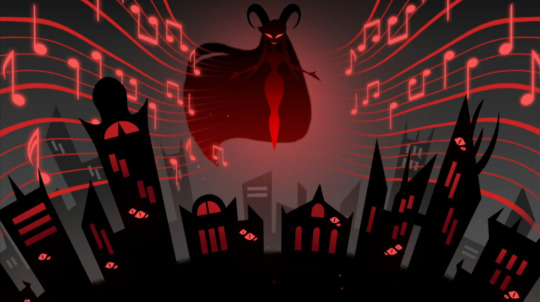
In the first (non-pilot) episode, the " Story of Hell" book, as read by Charlie, states that Lillith "empower[ed] demon-kind with her voice and her songs - and as the numbers of Hell grew, so did its power."
After the extermination began, Lilith's "dream was passed down to her precious daughter, the Princess of Hell", who is presumably Charlie herself.
Two scenes later, Charlie is in musical-notation hammerspace with other denizens, being the cognito hazard that she is.
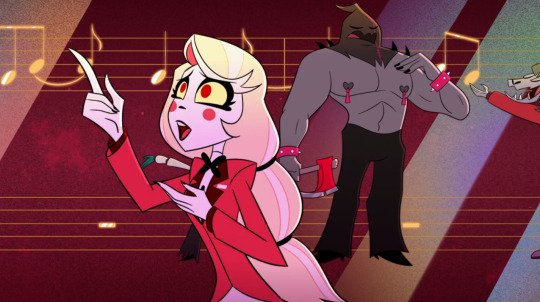
In episode 7, Rosie invites Charlie to rally Cannibal Town in defending the hotel during the upcoming extermination. When Charlie initially fails, Rosie asks how she normally explains her hotel. Charlie replies, "Through singing".
Singing is canonically a gift of both Charlie and every demon - both Hellborn and Sinner.
Which leads me to a theory:
One thing that's been nagging me since the pilot, is how Lucifer and Lilith have been fucking for nearly 6,000 years, but only NOW decided to have a daughter in the 21st century. It makes Charlie's existence look almost Mary Sue-ish*.
After watching Helluva Boss, it made more sense that Charlie might be an "insurance baby", much like Octavia is to Stolas' lineage.
Lucifer might not be unkillable. Carmine and the hotel battle of episode 8 have both demonstrated that angels can be killed with the right ammunition.
But why was Charlie born now, in the 21st century?
My theory is that Heaven asked Lilith to leave Hell, hoping she'd take her song with her.
Heaven knew that Lilith was the one making Hell stronger through her songs.
Charlie uses song to rally the people around her.
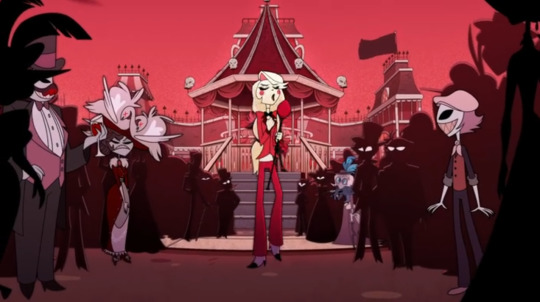
Husk used song to heal.
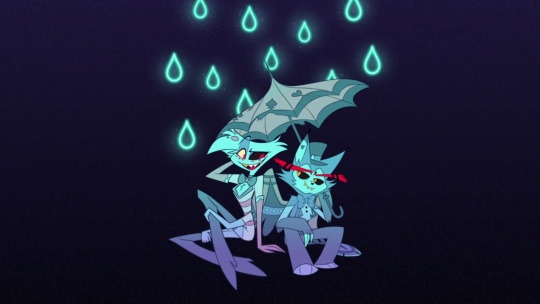
Song, even when used to butt heads, (ex: Lucifer vs Alastor), will make combatants drop valuable info, basically outing themselves to everyone within earshot in this universe.
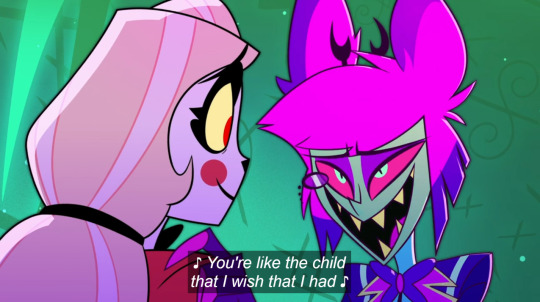
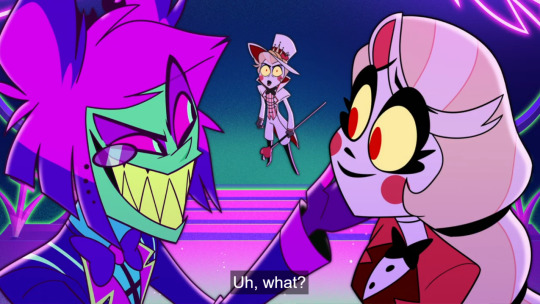
My guess is that a conversation sometime in the past went something like this:
Heaven: Lilith, bitch - we see what you're doing. Stop teaching Hell how to sing - the bonding and wholesomeness is threatening our status quo."
Lilith: No.
Heaven: Fine, we'll exterminate.
Lilith: (years later, looking at Carmine's charts) hmmm... the number of sinners getting exterminated each year seems to be climbing. Heaven might want all of us dead.
Hey, Luci-boo... get your depressed-ass over here. You wanna make a kid this time?
(Waits til Charlie is somewhat grown, and asks Heaven for a "meeting".)
Lilith: ok, I have got an offer you cannot refuse - I will never EVER sing again, and my power will leave with me - IF you give me a spot in Heaven (or Earth - I should technically be immortal since I never touched the Forbidden Fruit).
Heaven: um... win for everyone? ok!
Charlie herself (for lack of a better term) might be Lilith's "ace in the hole" herself.
Also, this makes me wonder if the only way to avoid lying is to avoid singing on the topic XD
*I have nothing against mary sues. I'd been wanting for years now to do something visual describing the internal turmoil that religious trauma caused in my The-Cell-starring-J-lo --like inner worlds. Telling personal stories and Mary Sues are inextricably intertwined. This show has inspired me to either keep pursuing that or just quit. Because picking apart past trauma for analysis can be more trouble than its worth - especially if you are ready to forget. u.u I still get deep chills every time I hear Emily and Charlie's duet in "You Didn't Know", even though I've officially considered myself atheist for like, what, three months?" This shit was an essay. I'm just going to play Warframe instead. Peace.
#hazbin hotel#hazbin hotel lilith#hazbin hotel theory#hazbin hotel charlie#hazbin hotel husk#hazbin hotel alastor
65 notes
·
View notes
Text
How to Write Strong Female Characters
Even if you write female protagonists all the time, subconscious biases can make them weaker than we intend. How can you make sure you write strong female characters? Use these tips while cretating your protagonists and supporting cast members so readers admire and connect with your story.
Note: This article is about writing cisgender characters and the stereotypes regarding them. To read more about writing incredible trans women characters, this post and this article are some great jumping-off points. A future post from me about writing trans protagonists will give the subject the space and time trans characters deserve.
1. Write Human Flaws
Women are often written as perfect or near-perfect characters. People expect so much of women in the real world—we want them to be attentive, fun mothers while being sexy spouses and respectful daughters. They have to succeed in their careers to provide for themselves and their family, all while fitting within the feminized constructs that make toxic male egos feel safe around women.
Basically, it can make writers create essentially perfect female protagonists. They handle everything well and when they can’t, they always find an answer to their problem.
Readers will connect more with female protagonists who are flawed. Your female protagonist should get angry, say the wrong things, make bad choices, and put herself first sometimes.
2. Avoid Objectification
Objectification is anything that makes a person feel less than fully human. It’s the scenes we’ve all read and movies we’ve watched where the female protagonist does something incredible—they save the world or take down a supervillain—and their partner, stunned in a love haze, says, “God, you’re beautiful,” before they kiss.
Complimenting female characters like this after they reach their resolution belittles their achievements. It means that even with their brilliance and courage, they’re still acceptable because they’re beautiful. Their beauty is ultimately the most important thing about her and the best way to remind her of her worth.
Other forms of objectification can sneak past a writer’s mind. Watch for these stereotypes as you work through your initial draft:
Describing her body parts as she gazes in the mirror
Saying she’s “different,” “odd,” or “unique” because she does a stereotypically male hobby or wears clothes that aren’t feminizing
Mentioning body parts in comparison to food
Making female characters manipulative for the sake of tricking people and not for any character growth goal/antagonist priority
Creating moments of immaturity that are seen as sexy (like whining being cute or pouting being hot)
3. Assign Individual Goals
Women are often written as self-sacrificing characters. They give up their time and energy for other characters because it’s what people expect of women in real life. Strong female protagonists need goals for themselves. If they don’t have an individual dream that makes them fulfilled or excited, they’ll swim through your plot exclusively for other characters’ arcs.
4. Watch for Female Cliches
Female characters often fit into specific cliches that are easily digestible for readers with conscious or subconscious sexist views. See if your characters fit into some of these common cliches to add the right flaws or arcs to make them fully human:
A symbol of purity: this protagonist never makes mistakes, is always sweet, and doesn’t have any sexual desires.
Femme fatale: this protagonist fills every room with sexual energy, only wears revealing clothes, and kicks ass with unearthly sexy grace.
A heartless bitch: this protagonist is always miserable for other characters to be around for no explainable reason, snaps at everyone, and basically takes on the role of a gradeschool bully at any age.
A pixie dream girl: this protagonist has no goals or arc of her own, exists to inspire other (mostly male) characters, and functions primarily as a plot device.
A Mary Sue: this protagonist can do nothing wrong and solves problems that she’s unqualified to do (minor example: Anastasia Steele in 50 Shades of Grey running a publishing business fresh out of college, where she didn’t study as a business major).
-----
Writing great female characters isn’t impossible. You only have to be aware of how those characters have been written poorly in the past. Watch for cliches and learn about examples of characters gone wrong to make your protagonists feel authentic, no matter what your plot has in store for them.
#protagonist#writing a protagonist#character creation#character development#female character#writing advice#writing tips#writers of tumblr#writeblr#writing inspiration#creative writing#writing help#writing resources
202 notes
·
View notes
Text
We need to address how media, and media critics, portray female characters poorly. What can be done about it? What are examples of media works that portray complex female characters well? What are writing tips for people trying to write complex female characters? Why do media critics hate on women?
Its just something I noticed.
Male writers drop the ball with female characters all the time.
They'll give the men all the good lines but women get weak roles and no sense of humor.
When we complain they then make a female character who has too many boyfriends and too much ego and too much power but no resourcefulness, or she's super powerful but still needs a man to save her, and of course they make her complain about everything and fight with everyone who helps her.
I could go on and on.
A lot of people are incapable of viewing female characters as anything other than an innocent saint or a portrait of pure evil.
Arguably the best characters are morally ambiguous ones who live in the gray area between good and evil, but women are much less often afforded that distinction than their male counterparts.
I'm been having a huge problem connecting to media.
The only women around are very young or very old and their main defining feature is usually motherhood.
If a woman my age exists who isn't a mom she's usually either obsessed with men or desperate to have a baby (or will be once the right dude comes along).
Fanfiction has great female characters , but you keep running into people who will only write a complex woman who's tied to a male main character.
Michael Burnham from Star Trek: Discovery . POC Female Protagonist. You probably have heard or seen a lot of hatred against.
Korra from The Legend Of Korra. Sequel Series to ATLA. POC Female Protagonist. Despite losing fights and suffering extreme trauma and making mistakes, critics passionately bash the show, calling her a Mary-Sue, and accusing the show of being Protagonist-Centered Morality.
A lot of the time if there is a military high ranking female character or just female leader that is masculine or butch she will be the villain to be defeated by the traditionally feminine or at least more feminine heroine/love interest of the hero.
I hate this because it basically implies that a woman can only be good if she’s conventionally attractive or a love interest.
It’s saying being butch is bad/evil.
Even movies trying to be feminist, like “Contact” which I had to watch for homework?
With Jodie Foster from the 1990s told the brilliant, focused woman scientist to not be so “confrontational” (as two male characters stole credit for her work right after they stole her funding) and to be happy with “small moves.”
They continued to pat her on the head and tell her to be quiet through the whole movie.
The one time she even spoke to another woman was to ask where she could find a really pretty dress. This was supposed to show growth in her character arc.
If I recall correctly, one of the playable characters in the next release of the grand theft auto series is gonna be a women.
People online were flipping out over this saying they are being too "woke", among other things.
Its funny to me because there has been 5 gta games with only male protagonists, and now there's 1 female in it and suddenly its a problem.
Its like these people think there are only 2 genders in games, male and woke.
Heck, people love basic trope laden protagonists..... until they are women.
People love unreasonably over powered characters that are loved or feared in equal measure by the entire cast..... until its a woman.
Then all of a sudden, she's a Mary-Sue and the show/game/book is "Protagonist-Centered Morality"
Some characters who are torn apart for their initial naïveté like Sansa Stark or Usagi Tsukino (Sailor Moon) are immediately written off as stupid girl characters.
Never mind that one becomes a political powerhouse and the other routinely saves the world.
People just write their characters off as too “girly” or “annoying” before they even have the chance to redeem themselves in their stories.
Feels like at it's core, people don't like women trying to build self confidence and play out power fantasies.
The only difference with the original Mary Sue was that she was imagining being liked by everyone, which was every woman's dream back then and to a certain extent, now.
The power was being well liked, and that made her annoyingly boring because there was no struggle for her.
Men think struggle is needed, even in fantasies and dreams, but it isn't.
The term Mary-Sue gained a new popularity by shaming female characters (such as Rey, Galadriel, Captain Marvel,…). I am not saying the term is not used towards male characters as well, but it is more rare, and it is rarely as violent as when it is used to characterize a female character.
More importantly it is used against female characters unevenly compared to male characters, its accepted as a genre trope for a male character to be extremely capable or to acrue experience and ability rapidly throughout the narrative.
But when it's a woman suddenly "realism" must apply, a real person doesn't simply gain strength and talent through endless perfectly leveled hardship.
In simpler terms, Batman can launch a thug across the room with a single punch and it's awesome, Black Widow, however, is breaking the laws of physics when she does her famous around the neck takedown.
Neither are realistic, arguably any grown man launching another grown man bodily through the air with a casual punch is less realistic than a woman pulling off a skilled takedown, but the unequal application of standards says all that needs to be said about the critic.
Writing a "mary sue" to be male often results in a praised character that people don't really worry about. Like Goku or Kirito.
People are fine with it. Enjoy it. And there's massive amounts of rather popular fanfiction taking random male characters in series and sue-ifying them, making them the protagonist over the actual main characters, and slapping in poorly developed romance arcs.
It's "mary sue" 101, but hardly anyone talks about them in that light.
Meanwhile a woman shows a level of competence similar to another character in the same series (e.g. Rey to Luke or Anakin) and the accusations are everywhere.
Calling these characters one-dimensional is one of the dog-whistles of the modern [whatever]-gate colony creature.
They know that they'll get savaged if they come out and say they're mad because this character is a woman, so they couch everything in these subjective terms. She's one-dimensional. She's flat. She's badly written. She's a mary sue. I just couldn't relate to her.
You can argue with them, you can point out that, say, in Star Wars, that Rey's ability to handle weapons intentionally established in the early scenes of TFA, that we see the setup for the skills she's going to display later in the movie/series, and that her first win is against a badly wounded Sith apprentice. By contrast, Luke successfully fights his way through a huge space station against professional soldiers, then hops into a starfighter he's never flown before, outflies a bunch of experienced pilots, and pulls off a physically impossible shot to save the day.
But sure. Rey is the one who strains credulity.
You can point all that out, but none of it matters. They're not arguing in good faith. They're just mad that there's a girl, and know better than to say that out loud.
He pulls off the shot because he has a throwaway line about murdering animals the size of a camel for fun in his civilian craft that just so happens to have controls similar to the military superiority fighter because they were manufactured by the same company. Because that doesn't strain credibility. Also guess which parts were filled in later by novel writers who were like, "holy **** that makes no sense at all"
Sailor Moon and Sansa Stark are two female characters that start out as whiney cry-baby girlie girls who evolve into political powerhouses and heroes in their own right. But most people write their characters off immediately, because they’re disgusted by their girlish-ness.
While our media gives male characters a chance to grow, female characters are generally written off unless they either show masculine traits, or are used for fan service. It’s why women in movies and TV are usually a kickass tomboy or a girlfriend character.
So anyway, I guess my point is that there are amazing kickass women characters who are well-written and evolve and grow, but their growth tends to be written off as frivolous and not as cool as their dude counterparts.
Imagine an anime where the woman is the main character and she's strong, smart, and not sexualized ?
How about Guardian of the Spirit (seirei no moribito in Japanese)? The MC is a mercenary woman who fights with a spear. She's a complex character, maybe somewhat emotionally stunted because of growing up on the road. She meets a wonderful, compassionate male healer and I love how they break stereotypical gender roles. There's also a complete badass old lady with magical powers and a temper. One of my favourite characters in any genre.
But I'd like to add SuleMio to the list.
Some people did not like that Gundam had its first female protagonist last year, or that she's engaged to another girl, or that they have a romantic moment where Miorine makes Suletta "promise to be with me forever".
It's my first Gundam show and I was nowhere near the fandom, but even I heard the howls of rage from the otakus over that show while it was airing.
“ I highly recommend reading Mistborn by Brandon Sanderson.
Strong female main character with a supportive cast of male characters.
His Skyward series is also good for this.
Sanderson is great but there are some female fantasy writers that do this even better IMO. NK Jemisin has tons of great female characters.
Tamsyn Muir’s Locked Tomb series has a majority female cast and I’d say 4 or 5 of them are in the top ten most interesting and complex female characters I’ve read. “
You heard of The Bechdel test: Two women have to talk about something other than a man. There is no time window.
It came up in a 1985 comic Dykes To Watch Out For and although it is not a great indicator of more feminist content, it's a wonder much media fails to pass that test.
Have you seen
Arcane? That is a wild crazy masterpiece with awesomely complex awesome characters. It's animated, yeah, so what? But I mean, to say "it's animated" is a heavy understatement. Have you seen Jinx? Have you seen her portrayal of psychosis and godknows what else was happening in her head? No one in history came even close to that.
Queen's Gambit? Anya Taylor-Joy brought Beth Harmon flawlessly through immense complexity of the character
Mare of Easttown - Kate Winslet there is, I kid you not, the best acting I have ever seen. Her character is going through complex situations and emotions and learning to deal with her human side. Bryan Cranston raised the bar ridiculously high with Walter White, but Kate Winslet pushed it further up, set explosives on it, and walked away like a badass without looking at the explosion. No one is topping that anytime soon.
I'm sure there are more examples. But what I love about these, and a big part of what makes them perfect is that they are their own characters and aren't defined by men around them. Their greatn
I wish female characters were given better in terms of development and characterization. Honestly, I feel like a lot of people hate female characters simply because most male dominated media does such a poor job of writing women, and those characters aren't given the same excuses as poorly written male characters.
Anyway, yeah, sorry for my rant. Having grown up on Anime, Harry Potter, Star Wars, you name it?
I later in life realized what was missing, what is needed, and really needed to hear other people's input on this stuff.
I never understood the need for every main character to be only a cishet white guy. I had already come up with several characters of my own, all of them LGBTQIA+, and half of them women, and several also POC. But my writing and art skills are poor so I can't visualize them properly...
We need more female authors, and we need to promote the ones that are out there more!
(there are plenty of really, really good female authors, in all genres, but often they get less attention, because, well, misogyny)
Edit: If you want an example of how the double-standard towards women and LGBT is applied? Go watch RWBY or Legend of Korra. Both involve a deconstruction of tropes. Both involve women standing up against an authority that demands respect based on being authority, not based on respect.
Both shut down the white male savior trope so hard, that men and women who love the patriarchy despise both shows.
But of course, anything that Team RWBY or Korra does is immediately held to a double standard and ripped into for anything that they do NOT because they’re flawed or because of writing decisions. Its because they’re LGBT women that they’re held under a microscope.
Or have you noticed that every fixit fanfic for both series involves defending the Patriarchy while supporting toxic masculinity and trying to revive the White Male Savior trope that both shows have tried so hard to bury six feet under?
#witches vs patriarchy#feminism#female protagonist#female character#complex characters#fanfiction#writing women#writing LGBT#yes I am talking about RWBY but also other shows and media#writing#media#arcane#bechdel test#witches vs the patriarchy#rwby#legend of korra#lotk#lok#korra#rwby ruby rose#ruby rose#rwby ruby#writing advice#writing reference#let women be evil#let women enjoy things#just girlboss things
338 notes
·
View notes
Text
"Dreadnought!" review
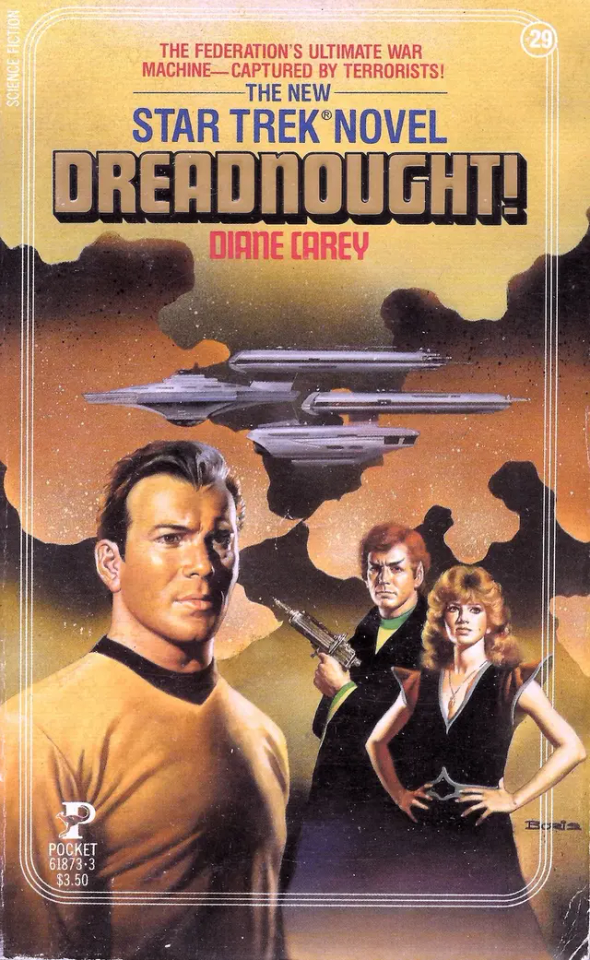
Novel from 1986, by Diane Carey.
There have been other books before this one, that focus on original characters instead of the usual crew. But those characters tended to be either a "lady of the week" or a scientist, on the same level as Kirk and the others. For the first time, this story presents the viewpoint of the underdogs: a group of junior officers that look up in awe (and sometimes amused) at their superior officers from the Enterprise. And it's a refreshing change of perspective.
The protagonist, and first-person narrator, is Lieutenant Piper, just transferred to the Enterprise from the Academy. She gets accidentally involved in a plot to steal a new Starfleet super-ship, and avoid a coup d'état, and needs to hone her commanding skills against the clock.
Her friends include Sarda, a Vulcan who's initially hostile to her due to a past grievance, Merete (a medical student) and Scanner (a technician, with a southern accent I think). Together, they form some kind of lesser-scale triumvirate, with Piper being clearly a younger, inexperienced version of Kirk; Sarda being an emotionally immature Spock; and Merete and Scanner forming together the McCoy (including Scanner bothering Sarda with his constant touching and emotionalism). They aren't carbon copies of the originals, though, and have their own dynamics and conflicts.
Piper is a fun, relatable protagonist, and some of her remarks are pretty hilarious. I don't understand why so many reviews label her as a "Mary Sue". She isn't anything like that, and very often shows insecurity, or is a bit clumsy. It's just that she has good potential as a leader, the ability to improvise and follow her intuition in seemingly desperate situations, and a bit of luck on her part. That's just literally Kirk! Including her tendency to body slam on security guards.
Leaving aside the characters, the novel expands on some types of ships (the dreadnought and destroyers), that up to this point had only appeared in technical manuals, or as very brief mentions in the movies.
It also presents a less-than-flattering view of Starfleet, at least in substantial sections of the top brass. And it's neat that the book includes an organigram of Starfleet and some drawings of scout ships.
Another thing that was elaborated on are the Eugenic Wars from the 90's, here blamed on the ascent of communist dictatorships all over the world (after all, this novel was published before the fall of the Berlin Wall).
Overall, it's a fairly good book with likable characters, and the portrait of Kirk and co., as seen from outsiders' eyes, is actually more spot-on than that of many other novels.
Besides, it includes one of the most exciting ship battles to ever grace the pages of these TOS books.
Some spoilers under the cut:
Lieutenant Piper impresses Kirk at the Academy, by almost beating the Kobayashi Maru test through some unorthodox tactics, and he request her to join the Enterprise crew.
There she meets her new roomates: Merete, Scanner and Sarda. The latter is a Vulcan who's currently struggling to reach Kolinahr, and at first doesn't want to even talk with Piper. It seems that she made a serious blunder at the Academy, recommending Sarda for his proficiency at weapons. Even though she was well-intentioned, this fact ostracized Sarda from his Vulcan colleagues, that didn't approve of his interest in weapons due to their pacifistic philosophy.
The Enterprise is soon assigned a new mission: the new dreadnought Star Empire has been stolen by terrorists, and they have requested a rendezvous with Kirk's ship (the fact that Starfleet has been developing such weapon-heavy, offensive ships like a dreadnought, and that it's called "Star Empire", should already be a red flag).
However, the specifics for the rendezvous have been encoded in such a way, that only Piper's biocode can decrypt them. Due to this reason, Piper is called to the bridge, in time to see Star Empire being surrounded by Klingon ships.
Kirk orders her to take the helm, but Piper is terrified and can't respond accordingly, which makes her doubt her abilities for command.
Star Empire takes a bad beating from the Klingons, and is seemingly crippled. But just then, the real dreadnought emerges from its hiding place behind some asteroids, and destroys the enemy ships. As it turns out, one of the new capabilities of the dreadnought is projecting fake copies of the ship to lure enemies.
Now surrounded by copies of Star Empire, the Enterprise decodes the message using Piper's bio data. Her boyfriend Brian appears on the viewscreen, speaking on behalf of the rogue commander, Paul Burch. He assures Kirk that their mission is one of peace, and that they're not terrorists, and requests a party to come aboard Star Empire, including Piper and at least one Vulcan.
Suspecting Piper to be on league with the hijackers, Kirk arrests her on her quarters... without much in the way of security (which makes Piper wonder if Kirk actually expected her to escape).
Using an easy trick that she learned from Brian, Piper escapes her confinement, and steals a fighter ship from the hangar.
Sarda unexpectedly joins her, since he also wants to know what's going on in Star Empire. The Vulcan had designed the dreadnought's projector, but Admiral Rittenhouse, the mastermind behind the whole project, took all the credit.
From this point onwards, Sarda will warm up to Piper little by little, as they come to understand each other.
They escape the Enterprise in the fighter, but never reach Star Empire. Rittenhouse has arrived in the destroyer Pompeii, and captures their fighter in a tractor beam.
Aboard Pompeii, the Admiral tries to convince the cadets that Burch has gone insane, and explains his plans for the future of the Federation. A future without wars, or Klingons, or Romulans, or any kind of dissension... And Piper starts realizing that Rittenhouse's plan is a road to hell paved in good intentions, and how the new dreadnought fits into all this.
Left alone for a moment, Piper and Sarda investigate the computers, and find out a disturbing pattern, where all the key positions in Starfleet have been filled with Rittenhouse's minions during the past years.
They try to warn Kirk about the conspiracy, but Rittenhouse discovers them and puts them in the brig.
Nonetheless, a brief power malfunction opens the brig's force field a while later. Piper and Sarda escape, in time to see Kirk, Spock, McCoy and Scotty entering the briefing room of Pompeii, to discuss the situation with the Admiral.
They hide in a secluded part of the ship, and use their communicators to signal their friends, still in the Enterprise. Merete and Scanner materialize next to them, and they get a link to the briefing room, to spy on the conversations.
They see Kirk objecting to Rittenhouse's plan of killing the hijackers without even meeting with them first. And the Admiral arrests Kirk and his men, putting one of his pawn-captains in charge of the operation.
Piper and her friends rush to the rescue, and use some wacky tactics to distract the guards (the bunny hop!?)... Just to find out that Kirk had already freed himself without their heroic assistance (of course, that's the value of experience).
Kirk and his senior officers leave for the Enterprise on the transporter. But just when the juniors were about to follow them, the Pompeii transporters are deactivated. Then, the cadets have to make a last-ditch escape in a couple of fighters from the hangar.
Evading the Pompeii's weapons by staying close to the hull, Piper and the others reach at last Star Empire.
There, they meet with Burch and Brian, who stole the dreadnought to stop Rittenhouse's totalitarian schemes, and are trying to man the starship with a skeleton crew.
The last part comprises a pretty intense battle, with Star Empire and the Enterprise facing Rittenhouse's destroyer and his loyal ships. While the inexperienced crew aboard the dreadnought try to learn how to maneuver the mammoth ship, under such extreme conditions.
Spirk Meter: 3/10*. The relationship between Kirk and Spock doesn't escape Piper's observations. She notices that both of them share some kind of silent understanding, where a look to each other is enough to communicate their intentions.
There's also a humorous bit, when Piper is surprised to learn that Spock is literally half-human. All this time, whenever she heard about Spock's "human half", she thought they were referring to Kirk himself!
*A 10 in this scale is the most obvious spirk moments in TOS. Think of the back massage, "You make me believe in miracles", or "Amok Time" for example.
22 notes
·
View notes
Text
"Naruto is generic and trope-y. It's not a deconstruction."
Naruto manufactures a whole myth about himself following conventional shonen archetypes. From the start we get this clear basic narrative from Naruto about how he views the world and in this narrative he is the "underdog hero main character" and in this narrative Sakura is his fated "love interest" and Sasuke is his "arrogant rival antagonist". Tropes taken straight from any basic shonen ... But this is not the reality. It's a myth manufactured by Naruto. Naruto isn't a hero. He is an oppositionally defiant, attention seeking kid who will do anything to get attention, who constantly demeans others, or, as with Sakura, harasses her to the point that he'll even disguise himself as Sasuke to trick her and almost steals her kiss (today we'd call this sexual assault actually). It's actually very understandable why sakura and the other kids disliked Naruto.
What's not understandable is why Sasuke of all people stands up for him and defends him. Because despite how Naruto narrates it, Naruto initiates every early conflict between the two, and Sasuke responds extremely graciously. In the first chapter we see Sasuke stand up for Naruto after Naruto had just attacked him. Sasuke offers Naruto his own food and who pulls team 7 together. Sasuke is the one who protects Naruto. Sasuke even asks Naruto for help and Naruto responds by throwing it in his face. Sasuke goes out looking for Naruto after he's been out all night. And Sasuke is the one who dies for Naruto and tells him to go fulfill his dreams with his last breath. But the problem is that most people buy into naruto's myth and see Sasuke and Naruto as these archetypes, when actually the story is deconstructing them. Naruto isn't a good guy. He isn't a superman. Or a Mary sue. Or a character who doesn't have development. He starts off as a neglected kid who is angry at the world, hiding behind the grand narrative he has manufactured for himself to give himself a purpose. How else could Naruto ask with all seriousness, "why a great ninja like himself was getting put on a team with a bad ninja like Sasuke?" Naruto lives in this delusional shonen narrative following basic archetypes of shonen because that's how kids think. Naruto sees the world in black and white and he imagines himself as the hero of his story, as all kids do. Sakura too has a generic shojo-like narrative in her head at the start which also gets completely torn apart. Why? Because the story is deconstructing these narratives. It takes Naruto until the end of part one to completely step outside of his imagined narrative and face reality. And only because he sees how it has actually hurt Sasuke. He takes responsibility for the part he himself played in destroying sasuke by treating him as if he were only a rival he wanted to defeat.
In reality Naruto felt a connection with Sasuke and admired him, but his fear led him to manufacture this fake narrative that kept him constantly treating Sasuke like the bad guy and keeping him at arms distance. And Sasuke believes that that is all Naruto sees him as. Not a human, but a means for Naruto to use prove himself. Just like most of the people in sasuke's life. That's why Sasuke says: 'this is what you've been waiting for' to Naruto. Because Naruto's acting like he only wanted to defeat Sasuke to prove himself has led Sasuke to believe it. This forces Naruto to shed his illusions and be honest with Sasuke for the first time. It doesn't stop Sasuke from leaving, but it does bring him back to holding onto his humanity and he won't kill Naruto for power.
Yes Naruto is a deconstruction. No, you're not supposed to just take things at face value or trust everything you're told. It's a show about ninjas and we are literally told in-story that you have to look beneath the surface. Itachi literally sums up one of the biggest messages, that people see reality as they expect it to be based on their own preconceptions. And the entire show is an example of that. People expect Naruto to be a typical shonen protagonist and Sasuke to be the typical shonen rival. And that's what people see. But if you actually look at the story you'll see that that is actually an illusion.
"Naruto and sasuke aren't actually two sides of the same coin. They're nothing alike actually."
If you think this, you don't understand the characters or the story. Mario and Sasuke are mirror images. Yin and yang.
Naruto is born with no identity, overlooked and underestimated. He dreams of becoming Hokage, the highest point of the social ladder and getting loved and respect by everyone, but he is neglected and alone. And then he is betrayed by someone he trusted... but right when he's at his lowest point, right when he could have lost his faith in humanity, Iruka comes in to restore that faith. And then he gains a team and a sensei.
And then Jiraiya.
And Tsunade.
And many others who come along beside him, and support him. Throughout the series Naruto gains more and more. He experiences the light of the ninja world.
Sasuke is born into a prestigious clan with a loving family, even if his brother and father are distant. Unlike Naruto, Sasuke doesn't dream big. His dreams are modest and driven entirely by filial piety. And then he is betrayed and tortured. No one comes in to rescue him. And Sasuke loses everything. And his family's reputation is now in the gutter and looked at with derision and scorn, and all eyes are on him to see if his clan were just frauds who never deserved their reputation. Sasuke constantly has eyes on him, evaluating him. People trying to defeat him just for the bragging rights. Sasuke gets put on team 7 with Naruto, but that's as far as his good luck goes with relationships. Because he's being targeted he never gets a chance to connect with his peers. He's rushed right out of the preliminary chunin exams and then arrives at the last minute at the arena for the actual event. He is targeted by Gaara, Orochimaru, and itachi. Except for Kakashi Sasuke has no good adult figures in his life who try to protect him, just adults who want to kill him or use him to further their own purposes. Sasuke experiences all the darkness of the ninja world. Literally. He literally spends three years underground. Everything sasuke has gets taken away.
And then taken away again.
And then taken away again.
So, yes, Naruto and Sasuke are two sides of the same coin. They are mirror images. Naruto starts the story desiring to be a heroic character, but his idea of heroism is shallow. In actuality he's more like the arrogant, jealous rival. Sasuke doesn't want to be a hero. Probably doesn't believe in heroes. But he's secretly kind and is empathetic to Naruto. And he's the one who makes the big heroic sacrifice at the end of the first arc.
And then they reverse roles.
Naruto starts to shed his insecurity and gains confidence. And Sasuke starts to lose his confidence and gain insecurity.
Naruto loses his distrust of people and stops being so antagonistic. Sasuke loses his trust of people and starts becoming very antagonistic.
Sasuke plays a big role in Naruto's rise, getting Sakura on board with trying to show Naruto more empathy, getting the team through the bell test, teaching Naruto the meaning of fighting to protect what is precious, teaching Naruto what self-sacrifice means. And Naruto plays a role in sasuke's fall, constantly antagonizing him. Looking to pick at any weakness. Keeping him distant. Of course these things on their own aren't enough to push him over the edge. In fact, at the start he takes it all in stride. So you'll forgive Naruto for believing he couldn't actually hurt Sasuke.... But then Sasuke gets targeted more and more and feels more and more useless, in a society where he's valued because of his usefulness. Naruto's jibes and attacks start to make an impact.
And the transposition of roles is completed.
27 notes
·
View notes
Text
ACOTAR fic ab Rhysand’s Sister: When Stars cry: She fixes the Night Court
Ok I’m actually pretty excited to write about Rhysand’s sister
So far the plot goes:
Pre story: in her youth she began experiencing visions about the future. She was initially close with Rhysand and the other bat boys but in time she slowly grew distaste for them after seeing the state of the Night Court under Rhysand’s rule. I plan to include flashbacks to her childhood to show the contrast between her gentle nature then and the woman she becomes, but her heart is still buried under her anger.
Story:When her mother is killed by Tamlin’s father she was kidnapped (they glamoured a random fae girl to look like her and sent her head to Rhysand to trick him and their father). She was locked up by Tamlin’s father so he could use her power, but because he was killed she was forgotten about and lost.
She’s spent 500 years locked away deep in the Spring Court in a coma-like state, drifting between the dreams of the creatures throughout all of Prythian. Her magic was still left in traces and its said you can hear the sound of her harp in the wind of the night court, as well as in the dreams of those she knew in childhood (she basically haunts Rhysand’s from his sleep) .
Tamlin eventually stumbles upon her and she decides she needs to take the night court over from Rhysand. She starts with the Illyrian mountains- negotiating and helping the women. After lengthy work she gains their support in overthrowing Rhysand.
Once she does kick him out she moves the CoN above the mountains (seriously the Night Court is the biggest one and they can’t find any room for the CoN???).
She becomes friends with Nesta (there is a chance they date), potentially Elain (I want them to bond over seer abilities and bring out the creepy in elain). I doubt Feyre since she’s devoted to Rhysand and it’ll be hard to undo her character assassination but I can try. She may have a thing with azriel rekindle but she’ll have to make him see the error of the NC since he’s a loyal Rhysander.
Idk if I want to keep her and Tamlin as a strong platonic relationship or let it turn into a romantic one. I think their growth and moving past Tamlin playing a part in her mothers murder and her imprisonment would be really interesting. We also don’t see enough f/m friendship in ACOTAR. They’ll definitely have a strong bond regardless.
other things about her:
She has beef with the cauldron and the mother and denounces the mating bond (still deciding If I want to add a plot line about that)
In youth she was a friend of Tamlin, like her brother.
She was an avid musician
She often ran away from home to spend time outside of her father’s confines, often visit other courts and enjoyed spending time in the spring court.
She also often snuck out into the CoN and stole food from the manor to give to the little kids.
She completed the blood rite to prove herself to her father
Her visions were developed because she has seer-like powers, but not exactly, more like foresight. This is how she saw Rhysand’s and the night courts transgressions during her imprisonment.
She recieved Illyrian training from Cassian and Azriel.
She, like Rhysand, is very powerful. She also shares Daemeti abilities.
When she was born she was considered an abomination because of her not-so-Illyrian wings. I might retcon this tho because I don’t want her to turn into a Mary Sue.
For names I’m thinking of the following;
Morana - A Slavic goddes of winter and death (Mora for short, her and Morrigan liked to match as kids)
Astraea - the Greek virgin goddess of justice & innocence and meaning star. I’m partial to this because I think it fits her character.
Vega - Latin for falling star, if I use this I’m gonna make some connection between her and star fall (or with any of the names idk)
or maybe an Rh name
—————
what do y’all think? I would love any and all feedback since this is a creation I want to share and enjoy with everyone!
also as a forewarning I’m not as flowery of a writer as sjm but that might be a breath of fresh air from growling “males” and watery bowels.
LMK if you want to be added to a tag list for updates!!
#anti sjm#anti acotar#anti sarah j maas#anti rhysand#anti inner circle#anti cassian#acotar fic#pro nesta#pro tamlin#rhysand's sister#acotar#acotar fanfiction#when the stars cry
34 notes
·
View notes
Note
Hey! so what did you think about Claire on the bear? I've seen some people call her a mary sue, a mpdg, a pick me which feels a bit much to me lol. I generally agree w people who say that she wasn't fleshed out and felt out of place bc of how carmy viewed her. My only thing is she never felt like an ER Doctor. Her career was supposed to be equally demanding so it should've affected their relationship in some small way at least but she kinda just seemed available for him at any given moment.
One of them I can see an argument for, the other two no. So before I get into the one I can see an argument for, I really need people to understand that these terms actually mean something. They're not blanket descriptors for female characters who annoy you and while we're at it, just for initiumseries, I'm going to add for the record that there aren't male versions of pick mes and manic pixie dream girls because these stock characters (or in the case of a pick me, viewpoints,) are rooted in misogyny
A Pick Me is specific
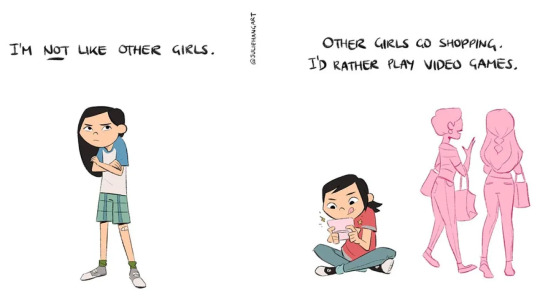
A Mary Sue is specific
Mary Sue stories—the adventures of the youngest and smartest ever person to graduate from the academy and ever get a commission at such a tender age. Usually characterized by unprecedented skill in everything from art to zoology, including karate and arm-wrestling [...] She saves the day by her wit and ability, and, if we are lucky, has the good grace to die at the end [...]
Like even Nathan Rabin who coined the term MPDG apologized for doing so because it keeps being misused:
I feel deeply weird, if not downright ashamed, at having created a cliché that has been trotted out again and again in an infinite Internet feedback loop. I understand how someone could read the A.V. Club list of Manic Pixie Dream Girls and be offended by the assertion that a character they deeply love and have an enduring affection for, whether it’s Diane Keaton’s Annie Hall or Katharine Hepburn in “Bringing Up Baby,” is nothing more than a representation of a sexist trope or some sad dude’s regressive fantasy.
It doesn't make sense that a character as nuanced and unforgettable as Annie Hall could exist solely to cheer up Alvy Singer. As Kazan has noted, Allen based a lot of Annie Hall on Diane Keaton, who, as far as I know, is a real person and not a ridiculous male fantasy.
From what I can recall, nothing about Claire is "Pick-Meish" or "Mary Sueish", she explains that when they were kids and a girl broke her arm, everyone was freaked out except for her because she wanted to understand the injury, that is not Pick Me-ish.
This is Claire
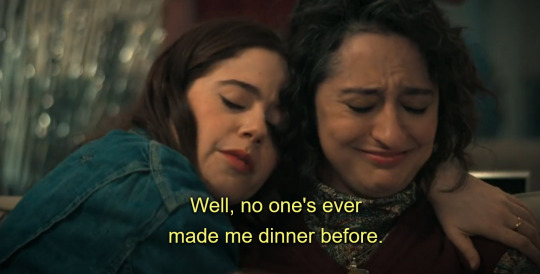
not this
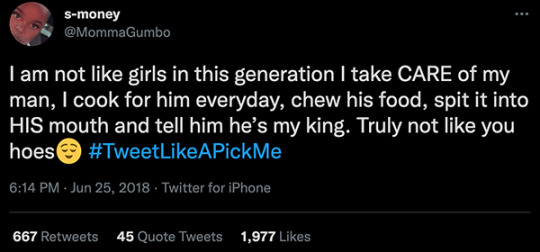
The fact that she has six months left on her residency doesn't make her a Mary Sue.
Now with regards to being an MPDG, these are the characteristics of one:
That day in 2007, I remember watching "Elizabethtown" and being distracted by the preposterousness of its heroine, Claire. Dunst's psychotically bubbly stewardess seemed to belong in some magical, otherworldly realm -- hence the "pixie" -- offering up her phone number to strangers and drawing whimsical maps to help her man find his way. And as Dunst cavorted across the screen, I thought also of Natalie Portman in "Garden State," a similarly carefree nymphet who is the accessory to Zach Braff's character development. It's an archetype, I realized, that taps into a particular male fantasy: of being saved from depression and ennui by a fantasy woman who sweeps in like a glittery breeze to save you from yourself, then disappears once her work is done.
She isn't quite the "pixie" part of the trope, I don't think she's whimsical enough for that, instead I would say she's the "insufferable female lead in an indie" trope (love this!)
instagram
because she does kind of just appear or sweep in to Carmy's life and has this history with him
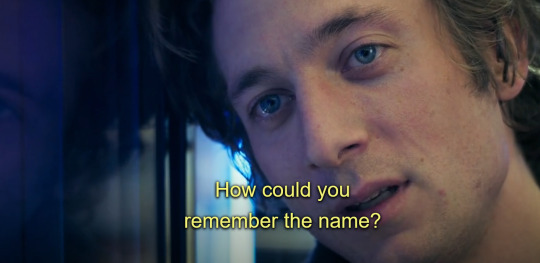
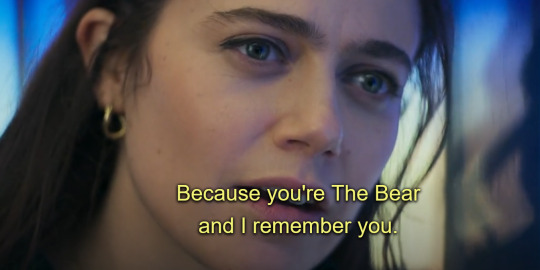
and instead of giving Carmy her number, she asks for his, therefore the narrative places the onus of initial pursuit on her
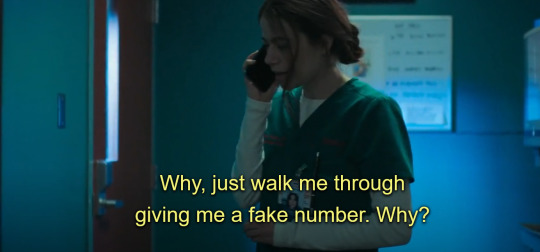
she's been carrying this torch for him since they were kids
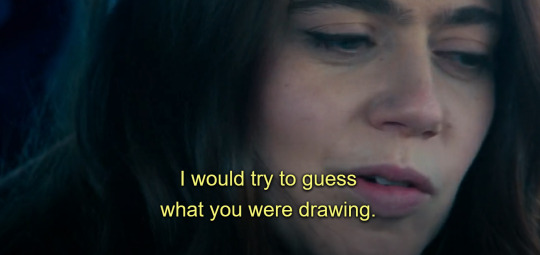
and her role is to be someone in his life that makes him feel good, that takes his feelings into consideration,
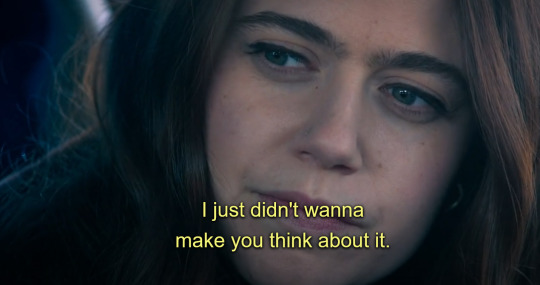
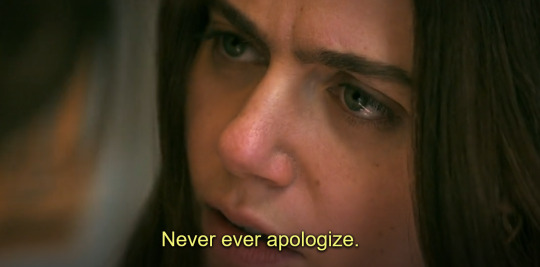
that gives him peace
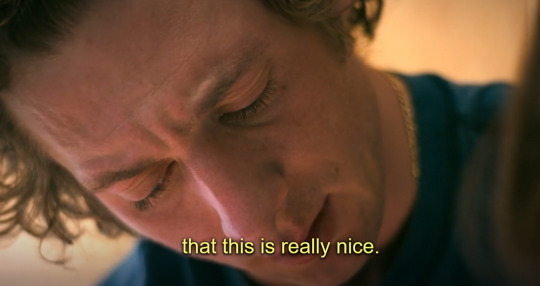
that urges him out of his shell
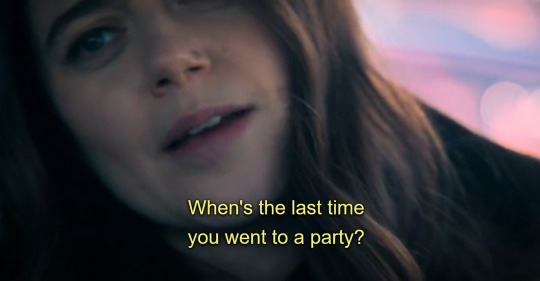
that shows him another way he can be and feel outside of the restaurant
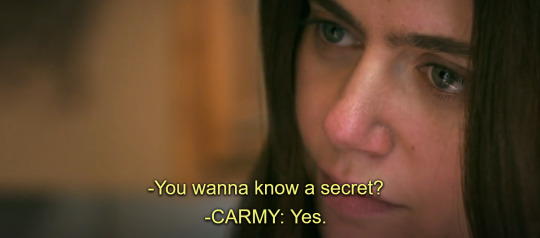
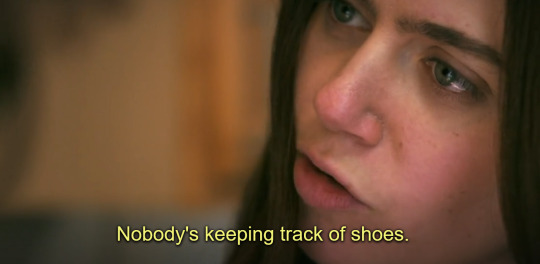
while we basically know nothing about her outside of that role.
What makes this iteration more complex than others is not Claire, it's not that she's a fully fleshed out character and we see more than a glimpse of her life and it's not that we get to know about her personally because we don't really, what we get is this
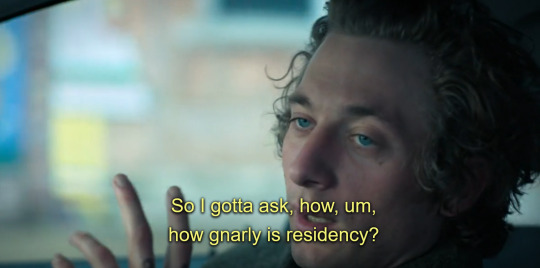
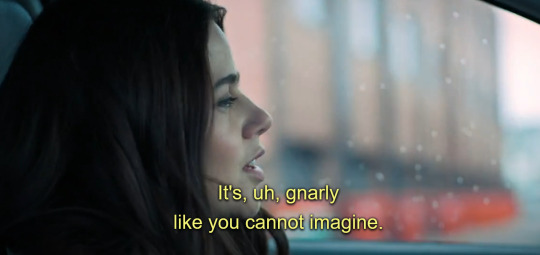
which just goes back round to Carmy and his complicated relationship with food and cooking anyway
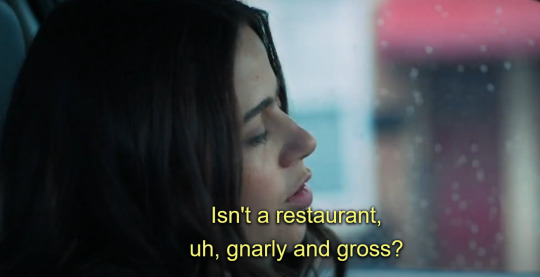
the subversion lies with Carmy and how he needs to heal and still has a lot of unprocessed trauma that doesn't go away because Claire entered his life, the show shits all over the typical outcome of the MPDG coming into the male protagonist's life and making it all better.
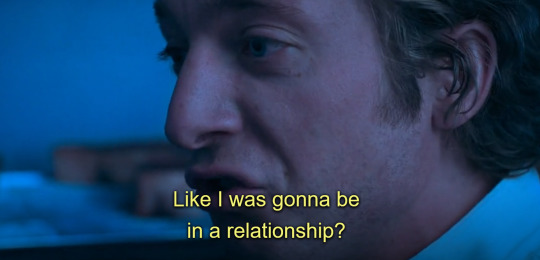
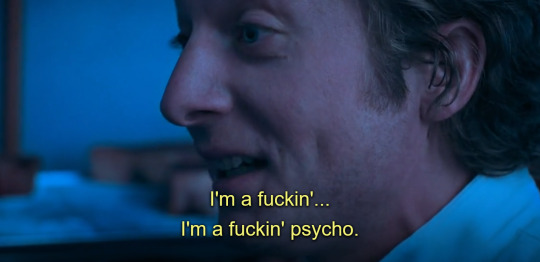
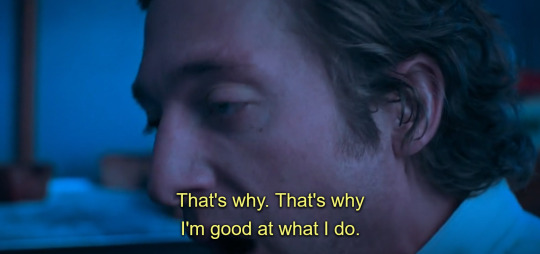
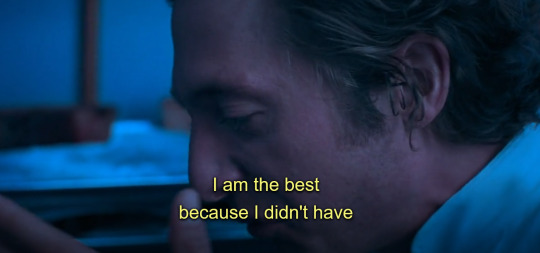
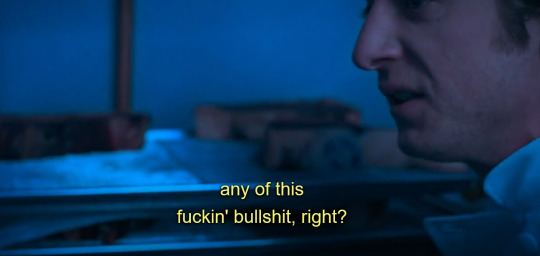
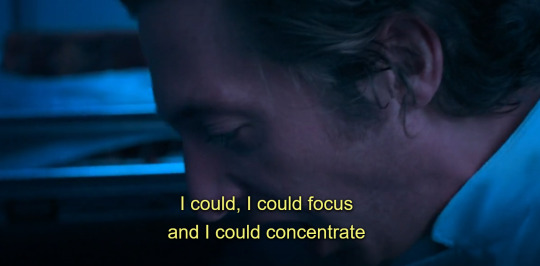
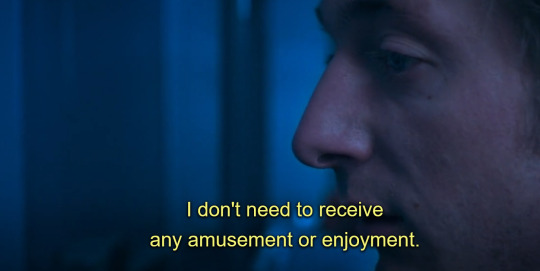
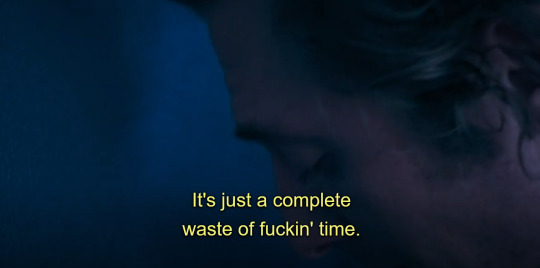
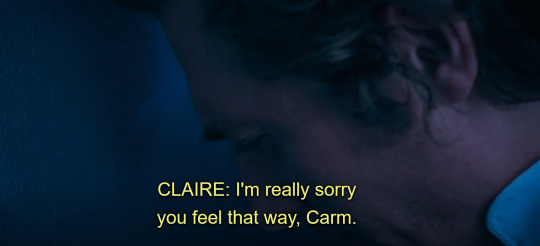
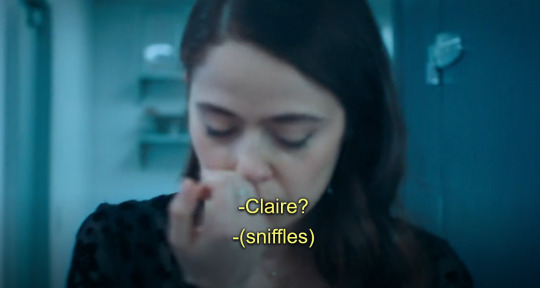
I'm not saying that they did that purposefully as in they're trying to say something about MPDG, like I don't think the show purposefully framed her as one or views her as one, I think they just wanted to show how deep-rooted generational trauma is and how it presents itself and how it affects your current relationships and it ended up being subverting an MPDG-esque trope for the male protagonist.
I don't know if any of this makes sense, I haven't slept and it's like 5 AM lmao.
58 notes
·
View notes
Note
hi! i read your misogynist post and while i haven't read it all to analyze, this one stood out to me the most:
In 1.06, Sam cuts Dean off before Dean can accept an offered beer from Rebecca, but then as soon as Sam needs Rebecca out of the room, Sam asks her to not just bring them those beers... but also fix them sandwiches. Rebecca says, "What do you think this is, Hooters?" and Dean mumbles, "I wish" and we somehow lose sight of the fact that Sam literally just asked a woman to make him sandwiches which is possibly the number one misogynist man trope.
while that i'm not justifying or defending, the thing about this section is he ASKED rebecca those things to distract her and not have her come back in the room right away after grabbing the drink, because he needed to DISCUSS with dean what he just saw on the camera without freaking her out because that was her brother. i would have done the same thing, and i'm a girl.
I would greatly appreciate it if you would read posts fully before responding to them. That said, of course there's a context to Sam's comments. I in fact stated in the very portion of my post that you yourself quoted that he wanted her out of the room:
then as soon as Sam needs Rebecca out of the room, Sam asks her to not just bring them those beers... but also fix them sandwiches.
Misogyny almost always has a conversational motive/context. It isn't usually cartoonishly and randomly spewed. There's a context to Sam's request. There's a context to Sam lying to the women he loves and intends as life partners, and using the word "bitch", and usually being bad with women more generally, and tending to view women Dean might be interested in or who might be interested in him as loose distractions. But if you think the writers weren't aware of exactly what they were writing when they specifically went to sandwiches, I think you're wrong, and Rebecca's immediate objection to Sam's request lends to the author's awareness.
The context of that entire section of the post is not to demonize Sam, but to state that fans who push this narrative that Dean is a huge misogynist (in an effort to erroneously demonize him) are almost always contrasting him with Sam, who they believe to be some bastion of progressive morals who has never so much as looked at a woman lustfully (because that would be Evil and Bad™️). When shades of misogyny in Sam (that he is very very unaware of) are intentionally written into the script from the Pilot.
Kripke appears particularly fond of giving Sam an air of moral superiority that often backfires on him when he endeavors to judge Dean. 1.16 "Shadow"—another Kripke episode—is also a great example. Sam at one point criticizes Dean (who has gathered all of their major leads up to this point) for not "thinking with his upstairs brain", because Dean dared get a bartender's number while asking her questions about the victim. Sam, meanwhile, has been floundering reading books and getting nothing. Later in the episode, Sam peers up at Meg in an upstairs window as she undresses, and gets called a creep by a woman who passes by and sees him leering. It's again—a situation where Sam's initial intention isn't any brand of misogyny. He thinks Meg is bad news and is tailing her, but then can't help... looking... and then looking again. But it's so blatantly intentional from Kripke—especially the contrast of Sam peering in at Meg upstairs while Sam sits in a car below—downstairs.
The goal of the writing team in writing in these moments certainly isn't to make me think of Sam as some horrible evil man. It's simply to give him flaws with a fascinating and rich context that make him far more interesting than the Mary Sue some of fandom is obsessed with rewriting him to be. Sam's misogynistic moments don't endeavor to villainize him any more than Dean’s do—they provide fascinating insights into Sam’s relationship with and clashes with Dean, and add to other incidents where Sam takes on a morally superior air—perhaps, in some ways, out of subconscious jealousy. I won't link you to every single thing I've written adjacent to the subject, but for example, this post on how Dean earns money, how Dean pimps himself out for information, and how Sam and Meg both minimize Dean's contributions to the case in "Shadow" while Dean actually gets all of the leads (similar minimizations occur in 1.10 "Asylum"—which is another excellent example of Sam floundering while Dean repeatedly displays his brilliance, only for Sam to ultimately accuse him of having no mind of his own).
24 notes
·
View notes
Text
Episode 17: Kathryn Maude on politics, the queen as evangelist, and the 11th century Encomium Emmae reginae

British Library Add MS 33241, fol. 1v
In Episode 17 of Inside My Favorite Manuscript, Dot and Lindsey chat with Kathryn Maude about the 11th century Queen Emma, who was married to and had children with both the English king Æthelred the Unready and his successor the Danish king Cnut the Great. The resulting political situation was complicated, and the Encomium Emmae reginae can help us understand the lines that Emma was attempting to walk as her sons grew into adulthood and prepared to take the throne. The text survives in two copies, the earliest one of which is British Library Add MS 33241, believed to be the copy that was presented to Queen Emma herself. Kathryn walks us through the manuscript and we talk about both the politics and the materiality of this fascinating text.
Listen here, or wherever you find your podcasts.
Below the cut are more photos and links relevant to the conversation.
British Library Add MS 33241, aka Encomium Emmae reginae (digitized online)
Folio 1v, the presentation of the book to Queen Emma, with her sons peeking out from the margin.

A close-up of folio 1v focusing on Emma and her sons.

A close-up of folio 1v focusing on the scribe presenting the book. Note that his hands are covered with a cloth. The son's hand has been added.

A close-up of folio 1v focusing on the curtains
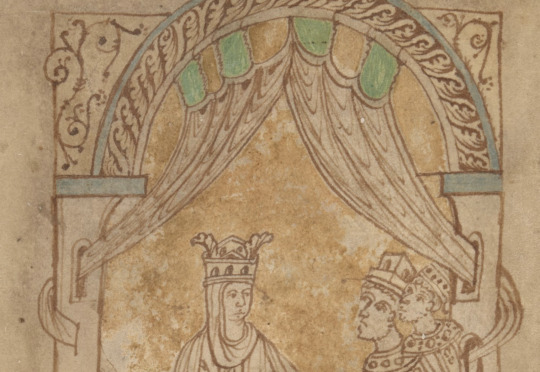
Boulogne-sur-Mer, Bibliothèque municipale, MS 11, miniature of Saint John, folio 107r

Close-up of folio 107r focusing on the curtains. Note Saint John holding the book with a cloth around it.

Copenhagen, Royal Danish Library, Acc. 2011/5, aka Courtenay Compendium, which contains the late 14th century copy of the Encomium Emmae reginae (apparently not digitized)
Doors of Durin, drawn by JRR Tolkien.

The Doors of Durin (Gates of Moria) from the Fellowship of the Ring film by Peter Jackson
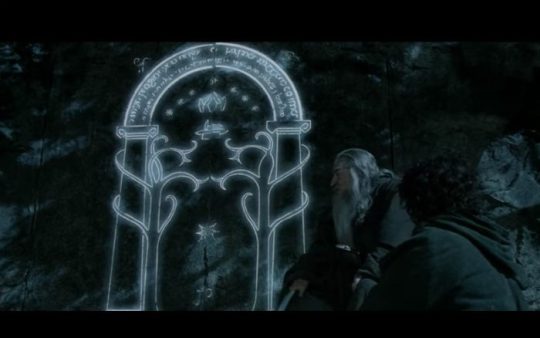
Middle Aged Women in the Middle Ages, edited by Sue Niebrzydowski. Gender in the Middle Ages, Volume 7. D. S. Brewer, 2011.
Folio 18r, Sven and Cnut's names are capitalized Half Uncials while the rest of the text is a regular Carolingian script.

Folio 48r, another example. Here Emma's name is capitalized at the top.

A king pointing to the text on folio 46r - "a manicule with a king attached" - with a note written beneath in the later middle ages, probably at Saint Augustine's Abbey in Canterbury.
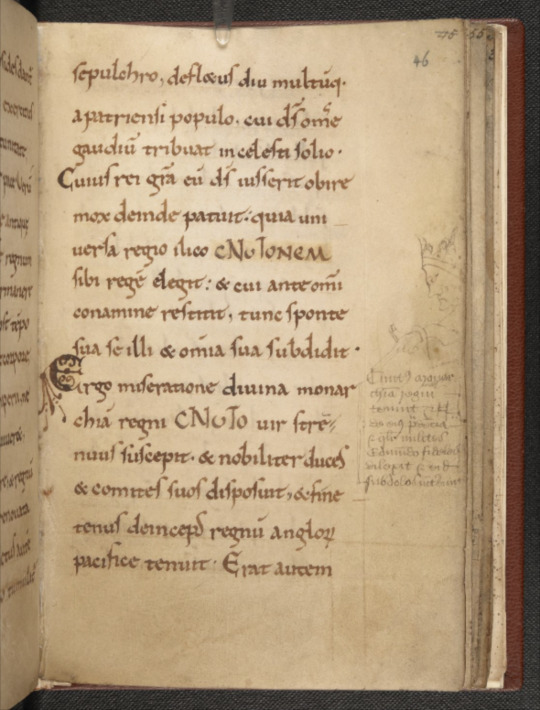
An ugly manicule (hand pointing at the text), folio 46v.

Folio 5r, a gloss in the margin.
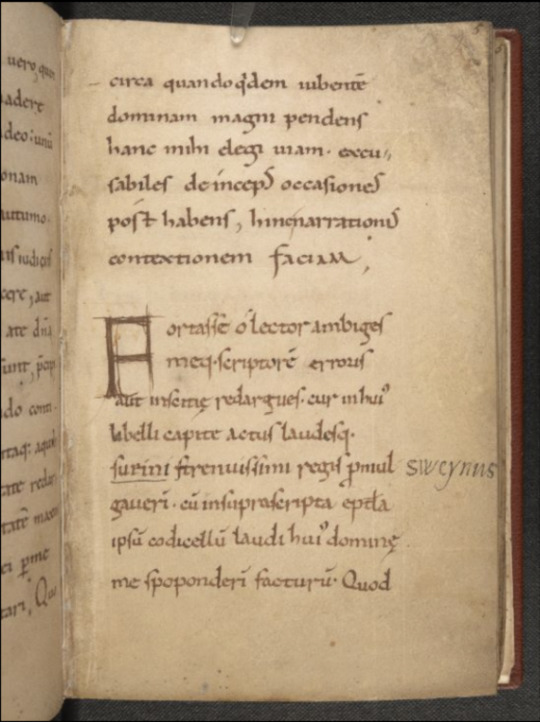
Folio 60r, an emoji in the margin of a couple of eyes to annotate the word oculi (Latin for eyes) in the text.

Close-up of the eyes.

Folio 58v, the parchment has been mended during the parchment preparation process, before the text was written.

Folio 54r, space was left for initials that were never added (the penciled M is probably contemporary but was never decorated)

Folio 2r, the first page of text, featuring a zoomorphic initial (i.e., an initial in the shape of an animal, in this case some sort of dragon and a fish eating each other) and colorful capitals.

Folio 8r, a zoomorphic initial R made of more critters eating each other. Good for a tattoo?
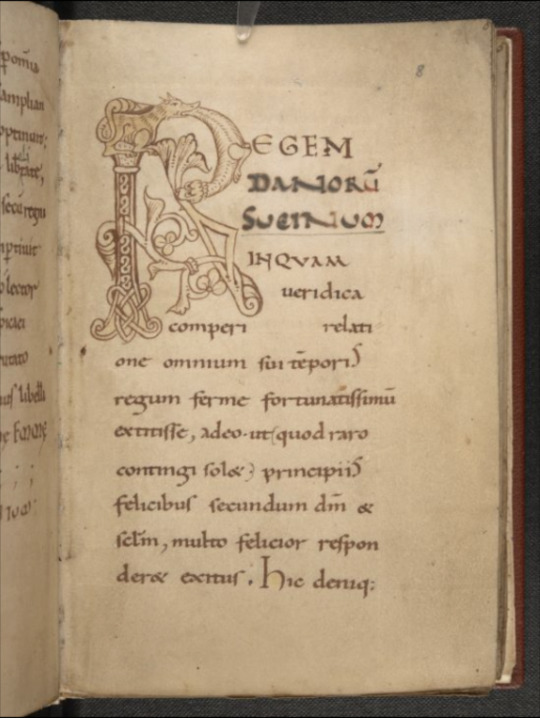
Folio 19v. "Explicit Lib[er] I" means the end of book 1, and "Incipit Secundus" means the beginning of [book] two (the second book).

Folio 50v, featuring Lindsey's ugly manicule
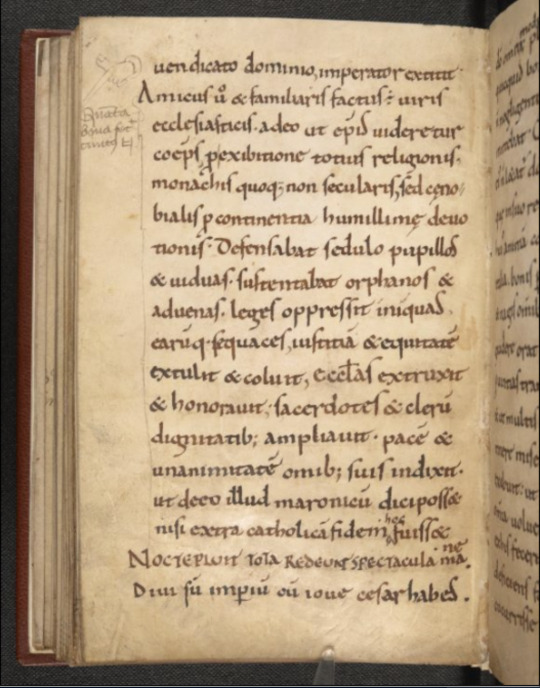
A close-up of the manicule
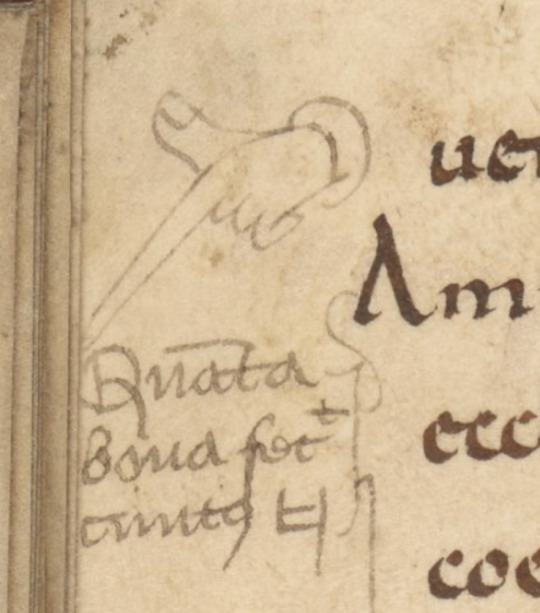
The Annunciation of Mary in Boulogne-sur-Mer, Bibliothèque municipale, MS 11
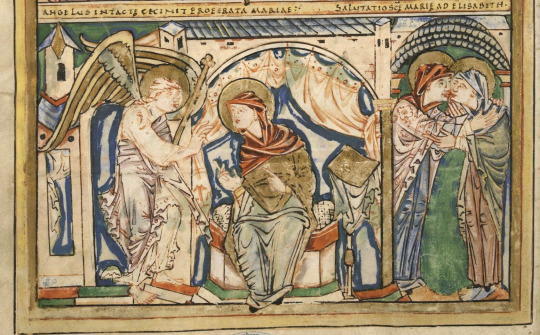
We talked to Brandon Hawk about the Vercelli Manuscript in Episode 7.
A hedgehog in the Luttrell Psalter (folio 19v)! (See it online)
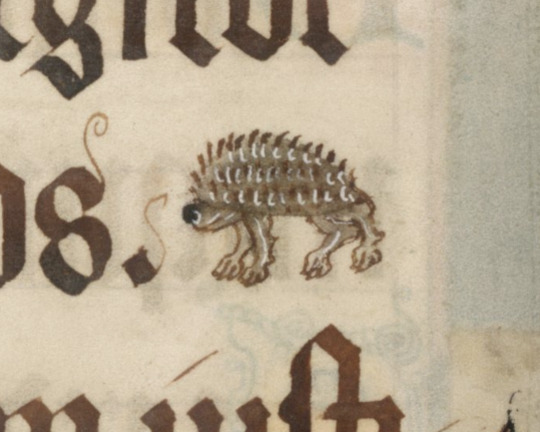
"The Social Centrality of Women in Beowulf: A New Context" Dot's very first published article!
#medieval#manuscript#queen emma#medieval art#art history#early england#latin#parchment#book history#rare books#inside my favorite manuscript#podcast#imfmpod
100 notes
·
View notes
Note
7, 8, 12, 15, 18, and 25 for Micaiah?
Ooh, I never get to talk about her! Micaiah Fire Emblem you will always be famous ^^
7) What's something the fandom does when it comes to this character that you like?
I definitely appreciate the fact the fandom has eventually mellowed out to her over the years. More people are starting to appreciate her and I'm all for it! Especially those who acknowledge she did some reprehensible shit ^^
8) What's something the fandom does when it comes to this character that you despise?
I don't know if people still do it but man, I remember years ago most hated Micaiah. As in, whole threads dedicated to calling her names as well as the dreaded Mary Sue.
That was for a number of reasons, but most of all that she dared to dislike and take the spotlight away from Ike. Nevermind she has legitimate reasons not to like the man (and she still comes around him) and Ike hoards like 80% of the screentime from characters who desperately need it while he stays pretty much the same from the end of PoR. FE fandom be normal about women challenge
As for a more recent example... Look, I also hate Micaiah/Sothe and think it's gross because she practically raised him, but can everyone please quit it with the groomer jokes? They're not funny and most importantly you shouldn't throw such a serious word around like you're a far-right politician complaining about queer people to the point it loses all meaning.
12) What's a headcanon you have for this character?
I imagine her relationship with Sanaki is pretty... Rocky at first.
Sure, they're happy they found out they're sisters, but also Micaiah kinda tried to burn her alive in Part 3 so, you know. At the very least an apology is due.
15) What's your favorite ship for this character? (Doesn't matter if it's canon or not.)
I don't have any strong ships for her... So I'd probably go with Yunaka! I feel her dynamic with the real Micaiah especially would be so interesting given both of them have quite a number of skeletons in their closet🤔
Also they cute 💕
18) How about a relationship they have in canon with another character that you admire?
As I mentioned before I think her relationship with Ike is so interesting because you spent all of PoR knowing him as the hero and yet she dislikes him because from her point of view, he's the one who conquered Daein and forced it under Begnion's foot, so of course she can't help but roll her eyes whenever Sothe speaks highly of him.
(I'm also realizing it's kind of a callback to that base convo in PoR after Talrega where its citizen tell Ike where he can shove the food he gave them after being the reason their homeplace got flooded and Shiharam died)
And sure, eventually she re-evaluates her opinion of him (although admittedly in a very easy-to-miss boss convo), but to me it's their initial dynamic that's so intriguing.
25) What was your first impression of this character? How about now?
I played Radiant Dawn blind after watching a playthrough of Path of Radiance, so my first reaction to her was the very common "No Ike, who this?"
Now it's almost the opposite, I still enjoy Ike but I love Micaiah so much more!
She is so interesting, I love her sass and overall personality, her original design is PEAK and her overall story is so good!
She's constantly put on the backfoot and forced to do some reprehensible stuff that goes against her very nature (doubly so because she's part heron) because her whole country is being held hostage, but unlike, uh, another FE lord with similar hair, no one tries to bend over backwards to excuse her actions. Her enemies know she's wrong, her allies know she's wrong, SHE knows she's wrong but is still determined to do what it takes to keep her people safe, no matter what happens to her. (And yet, the moment Sothe is threatened, she finds out she can't do it.)
She's also constantly trying to find a way out in the meantime, and the moment she does? She never looks back.
Also in general playing as the enemy army is so cool because not only are you horribly weak compared to the Liberation Army and they're pretty much steamrolling you (which is what makes Micaiah's Part 3 chapters so scary), but they can also recruit people away from you (Jill, Zihark). And that is literally one of the coolest things this franchise has done!
#ask replies#Anonymous#fire emblem#fire emblem radiant dawn#fe10#micaiah#my rambles#micaiah my beloved 😍#i fucking love her sm...
7 notes
·
View notes
Text
Feminism without feminists
I wrote this as a companion piece to my “Female Empowerment” post. I thought about putting it as an addition to the original analysis I made but I fear it’ll be overlooked as most of my followers already read/interacted with the initial writing.
Now, fear not, as the title is nothing more than a blatant “Marketing Strategy” I’ve decided to use. Although there’s some truth in the statement, it intentionally encompasses the entire movement for shock value rather than realistically covering the real portion I’m referring to: this expression is more inclined towards “Woke and White Feminism”, which has become incredibly popular amongst fandoms in general.
There’s this… incredibly oversimplification inside the feminist fandom of most fictional works where the fans limit or encompass the entire feminist spectrum inside one character, the one, and everything outside that specific character is either misogynistic or, in lesser terms, less feminist than the one they chose to project themselves as females. I understand that underrepresentation inside fictional works (particularly action fictional works such as super-hero comics and Shönen mangas) sparked the search for female representation inside the narrative by latching onto the most potable feminist character out there, but as of now in modern times, this search misrepresents womanhood as a whole.
Here’s the thing, women need to be independent but not that independent as to reject the main male character we envisioned her with:

Beautiful but not conscious of that prettiness (the shyer, the better), kind but not allow everyone to stomp on her, bold but not THAT bold, smart but not as much as her male counterpart, desirable but not for everyone or she’ll be a Mary Sue, sexy but not a slut, and most importantly, strong.
These contradictions between the two ends of the spectrum limited women’s representation inside stories (as they were “too complicated to write”), yet the response to this patriarchal erasure brought a new entire issue because, now, women are forced to be flawless in order to be likeable (so any characteristic that doesn’t match with our cultural idea of “likeable” gets either labeled as “misogynist” or completely ignored. Dr. House is incredibly rude and unrelatable, but it doesn’t matter because he’s a man, so he isn’t representing the entire male gender) and to be remarkable in usually more than one aspect (a single one isn’t enough, in Naruto’s manga, Sakura’s and Hinata’s fandom portrays each of them as the strongest, smartest, kindest, prettiest, fastest and so on -they need to give them all of these qualities because, otherwise they’ll be, by their standards, completely unremarkable, and women can’t be unremarkable, god forbid).
Many female heroes are mostly portrayed as physically strong, the obsession of Western media with depicting “feminist role models” as women with physical strength and calling it a day baffles me, as it hasn’t stopped yet.
Why is so important for a woman to be physically strong? Well Moriarty, because -of course, it means that not only men are strong; you see, women can be strong too! Although… not all women, rather, this one specifically because is the one this portion of the fandom chose to represent themselves inside the narrative and making all women equally powerful would strip the character they decided was the most feminist one of the uniqueness they want and in turn would make her… well, common.
She needs to be the strongest in this specific physical field because is the easier one to show, doesn’t need to construct an actual plot around it (so complexity for her character isn’t necessary), and she could “easily” take other characters down if needed (and in the context of a comic-book or shönen, that’s intrinsical). Neither Batman nor Iron Man are considered the strongest inside their respective universes, yet they’re the smartest, so they don’t need this physical skill to be considered a menace even against other characters that considerably surpass them (like Superman or Captain America). DC and Marvel also allow them to lose (and without giving them a romantical moment as a “reward”) because they don’t need to be the best in order to be compelling -something female characters aren’t allowed, as their capacities as fighters (strategically or physically) is their most intrinsical and important value; so if they lose or make a mistake they aren’t feminist enough: it erases everything they had going for them.
[Again, Sakura is the strongest kunoichi for her fandom, no one is able to dispute that because even showing panels upon panels of elements/techniques and/or strategies that could at least put her in a difficult place they come up with techniques she wasn’t shown to have (Tsunade being able to survive being cut in half doesn’t mean Sakura’d be able too) or they enhance canonical techniques to unimaginable degrees: She has great chakra flux control, that doesn’t mean she will have unlimited amounts of chakra to perform any sort of jutsu, as she uses only medical ones (Strength of a Hundred Seal stores 3 years of chakra into her forehead, not an infinite amount of chakra). Creation Rebirth regenerates her as long as she has enough chakra -and it’s even established it won’t work if it's a serious wound. Being a medic-nin and being trained to stay away from battles or dodge attacks (unless she has the Creation Rebirth) doesn’t mean she’s faster than a regular ninja. She’s told to be the “brightest” so that instantly translates into her being able to see through any strategy -she was outsmarted by another female character, Ino, but let’s ignore that and say that she grew up so much she’ll defeat her in no time. Ino also grew (they’ll admit it as, you see, they are feminists Sakura stans), but not as much as Sakura because well… she’s a better medic so… bookish… academic… translates to strategist… yeah.
Hinata’s fandom isn’t much better, as they translate Neji’s accomplishments to Hinata’s character. She was canonically shown to fail when trying to kill a Jubi clone with the Eight Trigrams, 64 Palms technique -which is why she needs to combine it with the Twin Lion Fists that draw chakra from those it touches, but instead of settling for a character that shows a pretty average female character capacity wise, they enhance her to their personal tastes of what a woman should actually be; because otherwise, she’s unremarkable, and as feminist we should only have remarkable female characters to cheer for!]
Furthermore, male characters need to be in awe of this female character's prowess because while most of those males are usually other characters with the same type of power or are surrounded by other people with the same capacity (so you would think that picking up a car wouldn’t be that jaw-dropping for them), they aren’t used to see women doing such incredible things, so they deserve praise -no, more praise than any male because they biologically aren’t wired to even attempt those things. And sure, being praised for something "considered normal" inside the male gender is isolating a single female character as the sole contradiction of a well-established norm, but she’s singled out and highlighted by the narrative as the feminist role model, so who cares about all the background females that accomplished nothing in order not to dispute the main heroine’s status? Every other female is weak and needs protection but not THIS female character (Loki praises Sylvie for being different than any other Loki variant -she’s the only female so uniqueness reached!- despite having, you know, a crocodile Loki right in front of him. I personally would be more curious about the only non-mammal variant -but who am I to dispute the God of mischief?).
Peggy shoots Nazis. She never has to be rescued or protected by Captain America or anyone else. She has a decent amount of screentime (...) She’s introduced briefing a number of potential recruits to the super soldier programme. This is the scene clearly written to establish Peggy’s SFC cred, and it unfolds like this: One of the recruits immediately starts mouthing off at her, first insulting her accent and then, when she calls him out of the line-up, making sexist, suggestive remarks.
She punches him to the ground.
Later she discovers Captain America being kissed by the only other woman with a speaking part in the film, who has no other role except to kiss Captain America. She outwardly maintains her composure until Captain America is handling his iconic shield for the first time, and its perhaps-impenetrable qualities are briefly discussed as well as the fact that it’s just a prototype. Peggy suddenly fires off several shots at Captain America, so that he must raise the shield (which does, thankfully, stop bullets) to avoid being killed.
Both scenes are framed as funny and impressive.
Source
Writers need to specifically show a very exaggerated form of sexism in order for women to react (violently) towards it. If not, they’ll make a male character (usually a background or non-important character) question a woman’s decision in order to illustrate the crudest and most open form of sexism because we haven’t had enough of those yet. Meanwhile, female characters’ abusive behavior is brushed aside (by the narrative and the fandom), because it’s “cute” and “funny” (women can’t be cruel if we want them to be likeable, but the fandom lets this behavior pass because, while strong, they aren’t as strong as to cause any actual physical damage and men don’t suffer from PTSD, right?) while their experience with abuse makes up for a compelling background for them:

Source
Many Naruto fans will jump to my neck and breathe through their teeth that “well, she’s the heroine, so of course she’d be the strongest and most important feminist representation inside the narrative” (and here they’ll turn and jump on each other’s throats as their chosen female lead isn’t the same and I’ll take advantage of the distraction to run), but let’s think of this a little more deeply: Is Sakura truly the heroine? Or does she happens to be the only female character with enough panel time? Technically, Naruto is the hero and Sasuke is his antagonist, so there’s no need for a “heroine” whose main activity is to merely be in close proximity to be considered “relevant enough”, she doesn’t move the plot forward (as that’s the antagonists’ job) nor is intrinsical for any other character’s development, so why is she “bound” to be the strongest as that’s not her objective nor role inside the story? Simply put: Sakura doesn’t need to be the strongest, furthermore, it doesn’t matter -as her character revolves around being capable enough to “keep up” with her teammates (and metaphorically, as she isn't as strong nor fast as them). She becomes one of the three best medic-nin of the world when she’s seventeen, yet that’s not enough because she needs to be better also in everything else (she, somehow, had the potential to do so, but by that premise, everyone had the potential to do anything if properly trained -that's the thing, why is she any different?). There’re men that surpass her power-wise but her fandom will create a fantasy where they don’t, or they’ll create a fantasy where those men won’t turn against her because they are in love with her, but she’ll always -always be prettier, stronger, smarter, faster than other female characters, because not only she’s the primary representation of feminism inside the story, she’s also their personal representation inside the narrative, and them -as the main character- need to be prettier, stronger, smarter and faster than their competition female counterparts.
Naruto is, by the end of the series, considered the physically strongest character, yet he isn’t inside the narrative nor for the fandom, the sharpest tool in the box. He’s not considered the smartest, he’s not even considered the person with the most ninjutsu repertoire out of all the male characters. He is allowed not to be the best in every scenario because he’s not considered the representation of his gender inside the story which, in turn, makes him more interesting as he's allowed to struggle.
Konan is, by far, the most feminist-relevant character inside the story -but she’s usually undermined because “she was just following Nagato and Yahiko around” but then I ask, what is she supposed to do then? She grew up alongside them and experienced the same things, why would she think or have ideals opposite or different from theirs? Didn’t Nagato just continue Yahiko’s fight? Didn’t Yahiko simply refuse to accept their current condition? Why are her ideals reduced to “following her male friends”, when she was an active participant inside Akatsuki?
Females, especially those who are chosen to be the “feminist standard”, aren’t allowed to be mean, dumb, weak, or ugly (because “feminists” are usually depicted by patriarchy as “unattractive” and “undesirable”, so they counterattack this depiction by creating this “beautiful and sexy character that everyone wants even if they are incredibly rude to them as that turns them on for inexplicable reasons” conception of the woman they’ve chosen to represent them) and they aren’t allowed to lose even against other women (and if they do, is simply a temporary setback that they are bound to overcome at some point) because they aren’t just women; no, they are the woman.
It is also quite striking how the main plot focuses on the problems brought about by a military system whose foundations are intrinsically patriarchal and how much of the “feminist fandom” focuses on the little to no inclusion of women within that system, rather than its dismantling, which was proposed to and tried to be carried out by other characters such as Konan (to mention a female character as bringing Sasuke to the picture might “compromise” the fandom’s idea of “feminism” that upholds itself under the notion that only women can be part of it).
The problem with this idea of “inclusivity” within an intrinsically repressive patriarchal system is that it is sustained on a smoke screen that hides the most rotten veins of the state, because then what is relevant is not the dismantling of an oppressive, enslaving and genocidal political system, but the lack of female participation within the oppressive, enslaving and genocidal political system. To this specific “woke feminist” fandom that is the real problem, that is the real issue within such a mindset.
Women are forbidden or diminished from positions of power in a structure specifically designed to oppress different groups of people to keep others at the top of the pyramid, and instead of seeing such a construction as a direct reflection of the real world’s dogmas and the characters that oppose them as real world’s feminist, you lot complain about the lack of female representation or “female power” within that maniacal structure! You’re more concerned about women not being “housewives” inside a military state that rewards blind nationalism and punishes criticism with literal genocide, than dismantling the entire structure upon which such a patriarchal notion is built.
Funnily enough, even when I point this out, they'll find a way to twist it to their benefit, because then Kishimoto is the one responsible for not “allowing” female characters to rise against such a patriarchal system (despite Sakura never suffering any of its worst consequences as she was taught by the Hokage herself, or even Hinata getting to be a slave-owner). Inclusivity is everything that this argument boils down to, their twisted wish to see women at every single panel whether it’ll be against or in favor of a genocidal state.
That’s what “woke feminists” taught them and that’s what they’ll defend with their breath, the problem gets again individualized and the real issue, the real problem that the plot is trying to reflect, gets buried upon piles of these arguments.
“The problem is about the military state that at its core it’s patriarchal” =/= “Then why did he write it as a patriarchal state?”
“The military state it’s patriarchal at its core so it’s the real world one” =/= “Then why didn’t he write female characters rising against it?”
“There’re characters that oppose such structure, which is feminism at its finest.” =/= “But they aren’t female.”
And so on… it's impossible to "win" or get our point across as they move the end goal every time a new argument arises. It's about fulfilling their power fantasies and invincibility rather than bringing down the patriarchal structure; just like with Naruto's character, is about gaining acknowledgment within the oppressive system (becoming a renowned/desired individual) rather than dismantling the power sphere to guarantee other minorities' safety.
Their idea of feminism comes down to women having a more important part inside that tyrannical paradigm, bringing the power scale towards them. It's not about stripping oppressive institutions of their power, but rather having influence over such spaces.
#feminism#feminists#woke feminism#white feminism#anti naruto fandom#anti sakura fandom#anti hinata fandom#anti sylvie#anti sakura#anti sakura haruno#anti sakura uchiha#anti hinata#anti hinata hyuga#anti hinata hyuuga#anti peggy carter#konan#konan naruto
183 notes
·
View notes